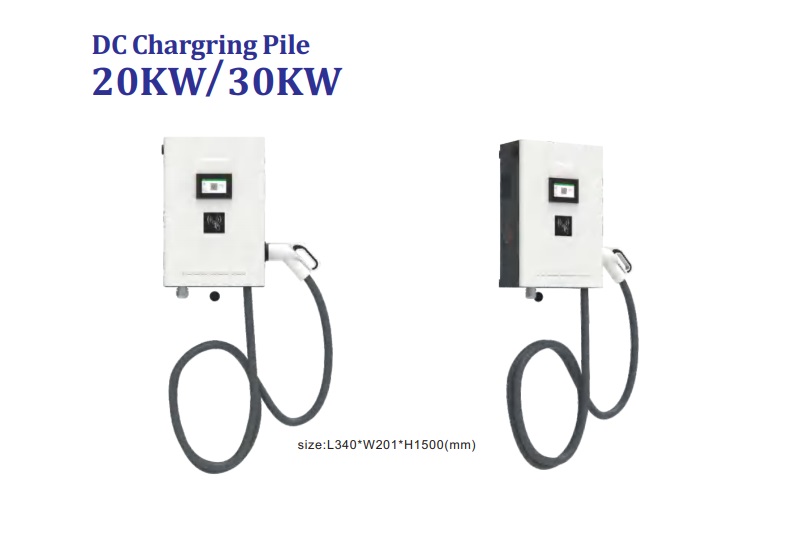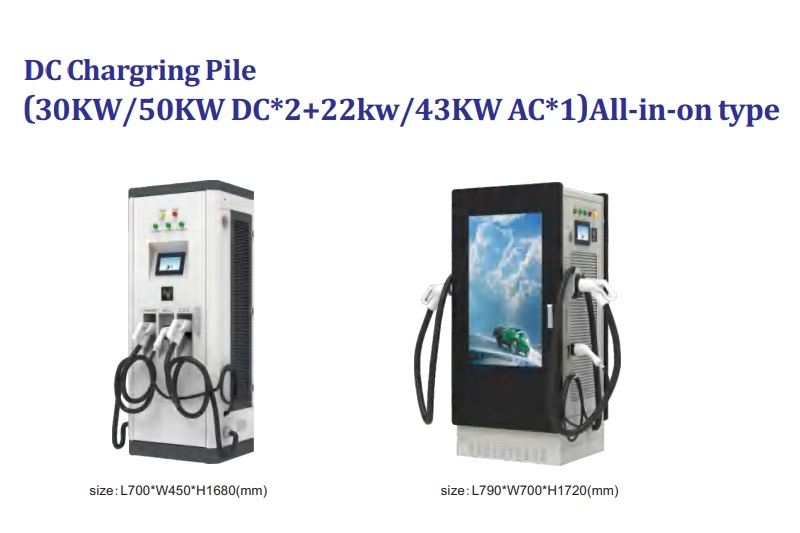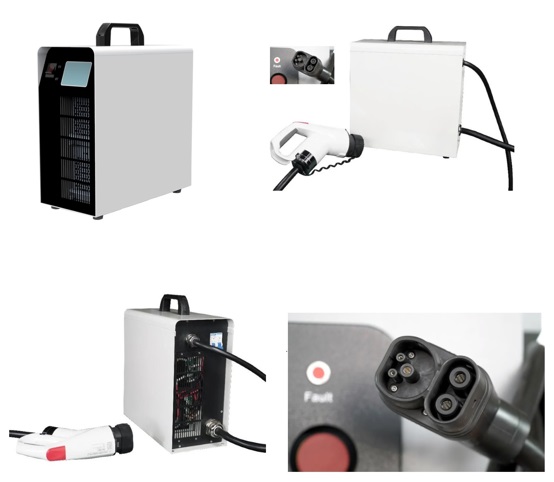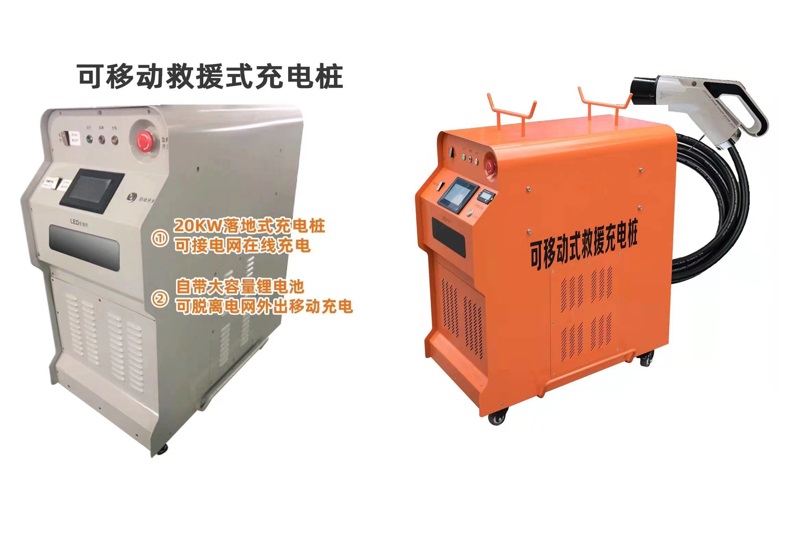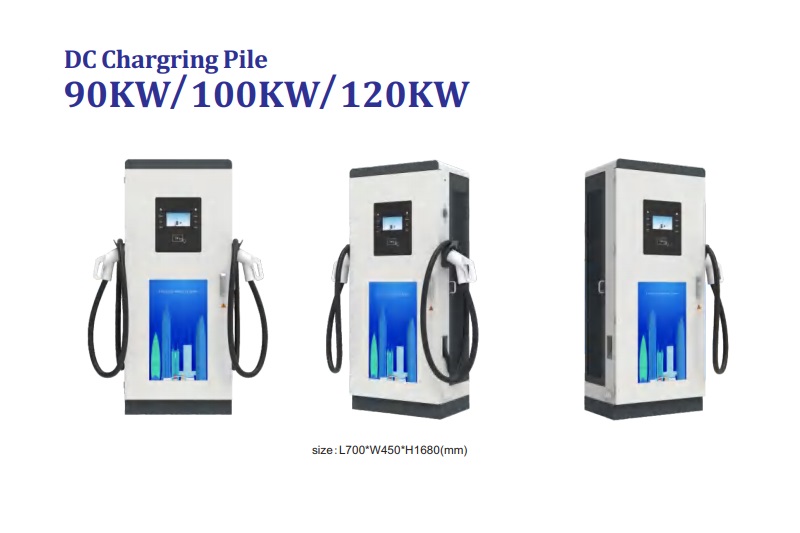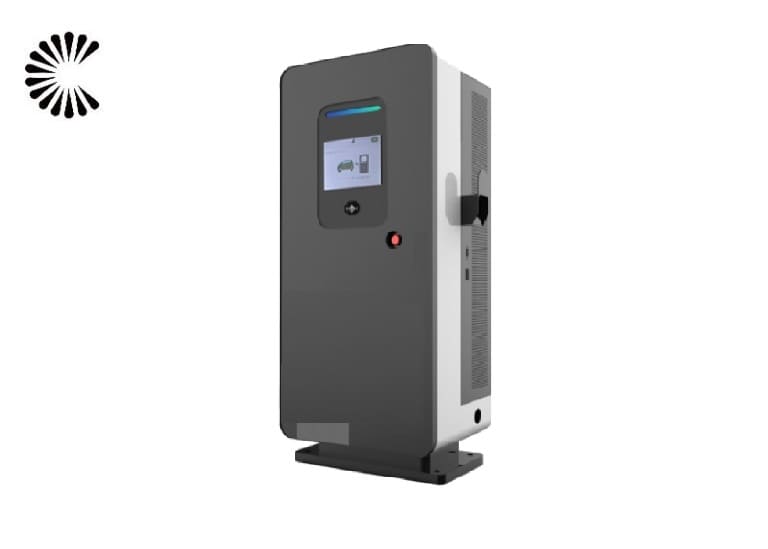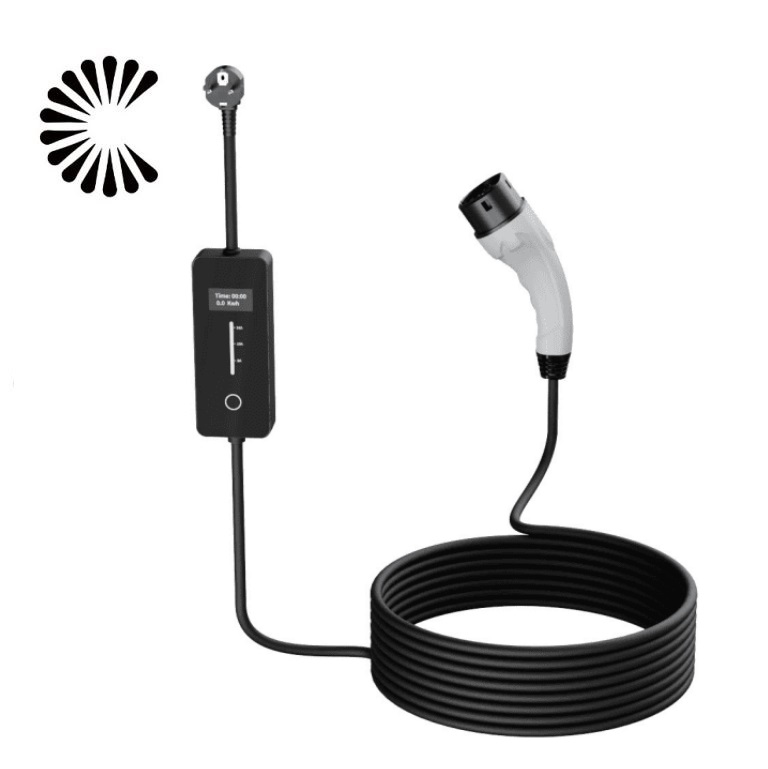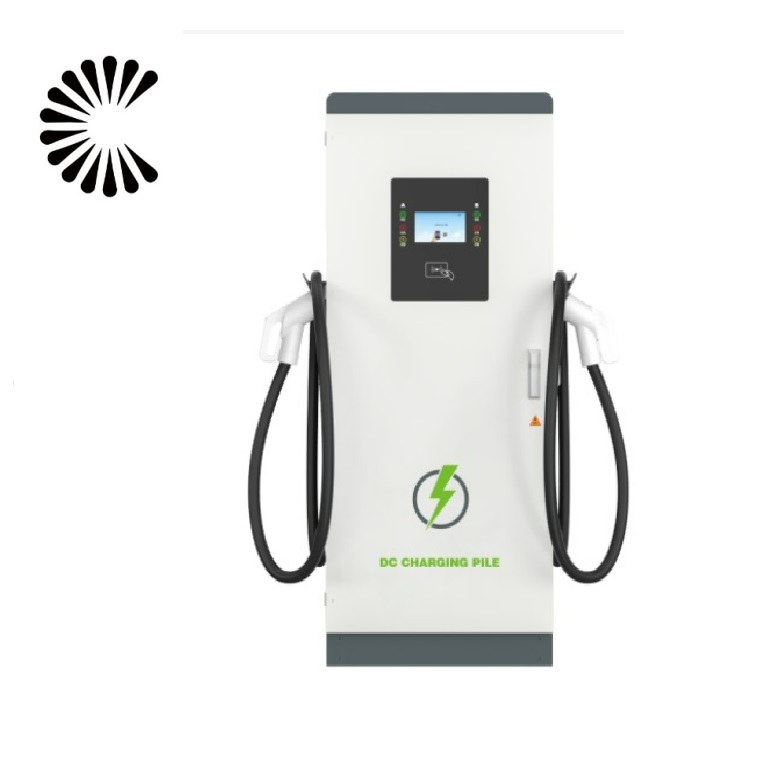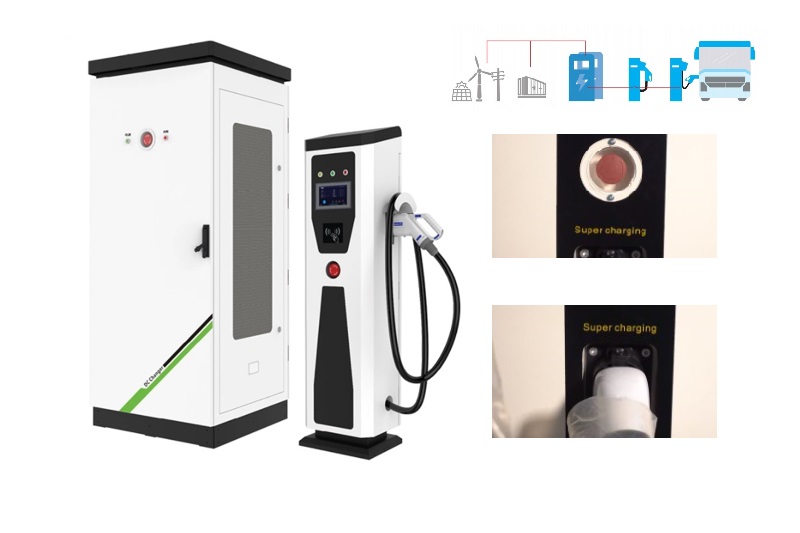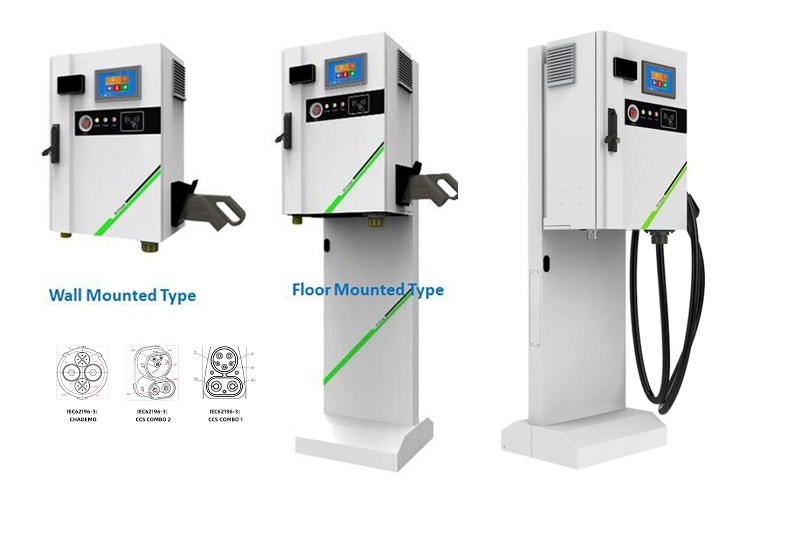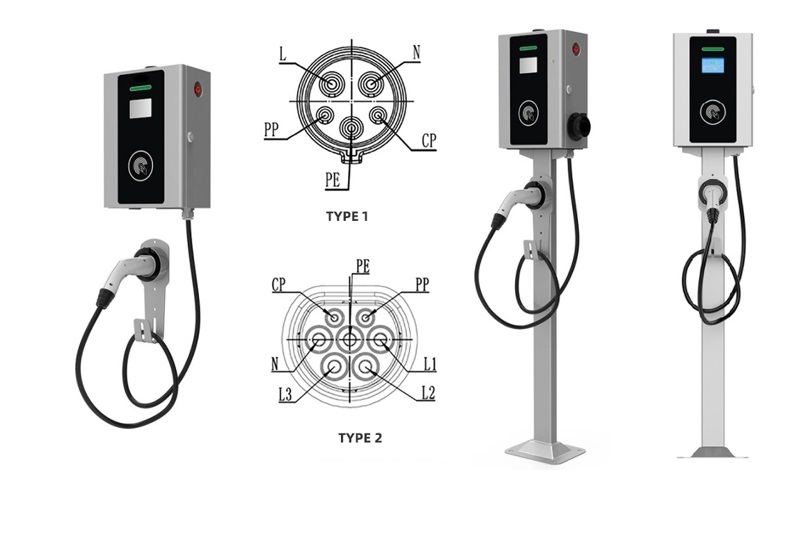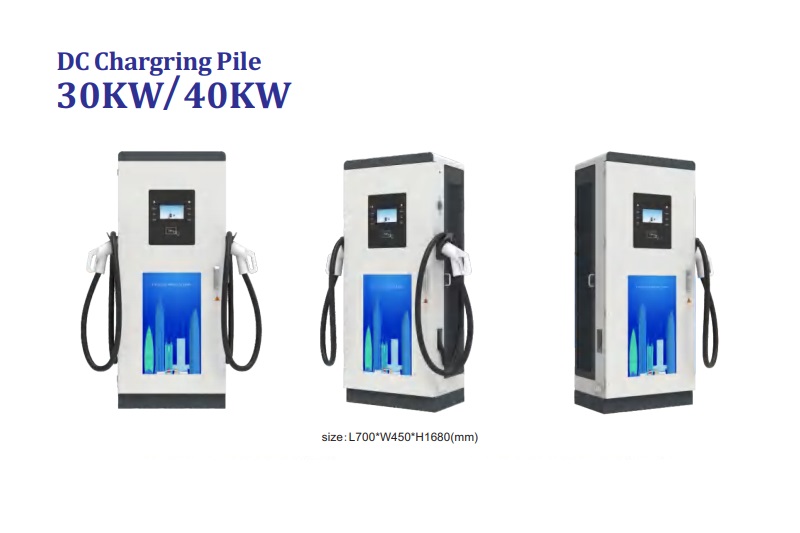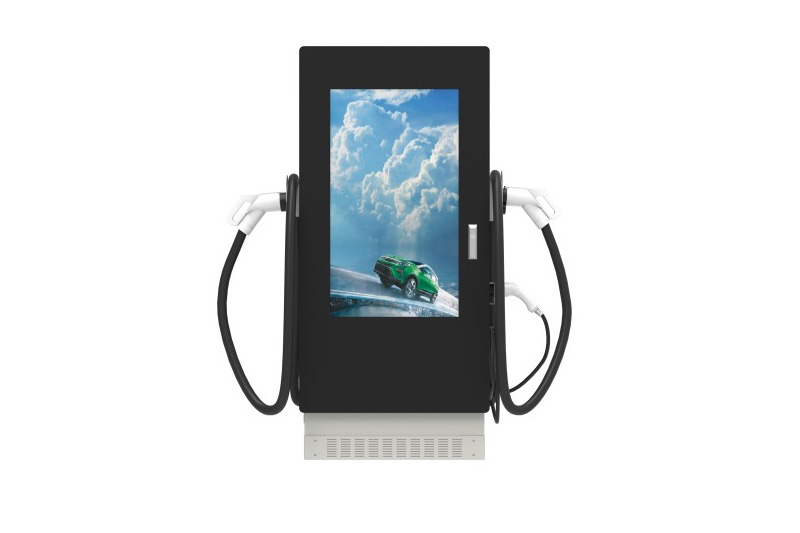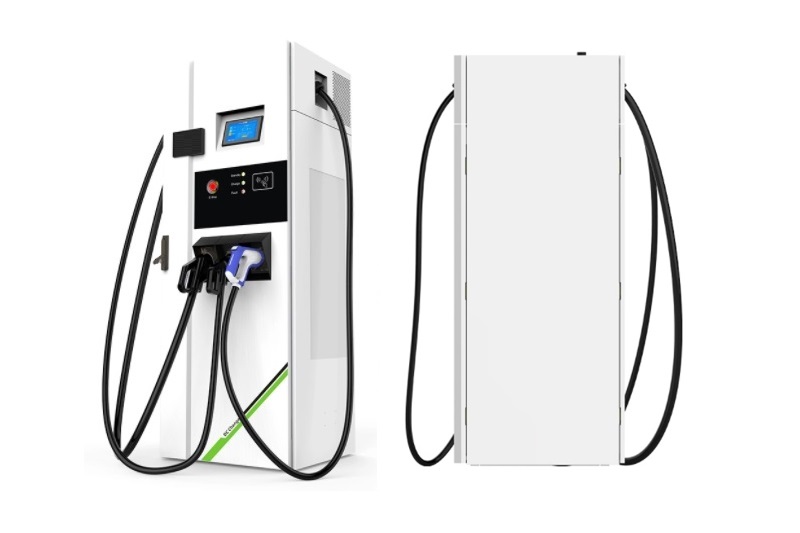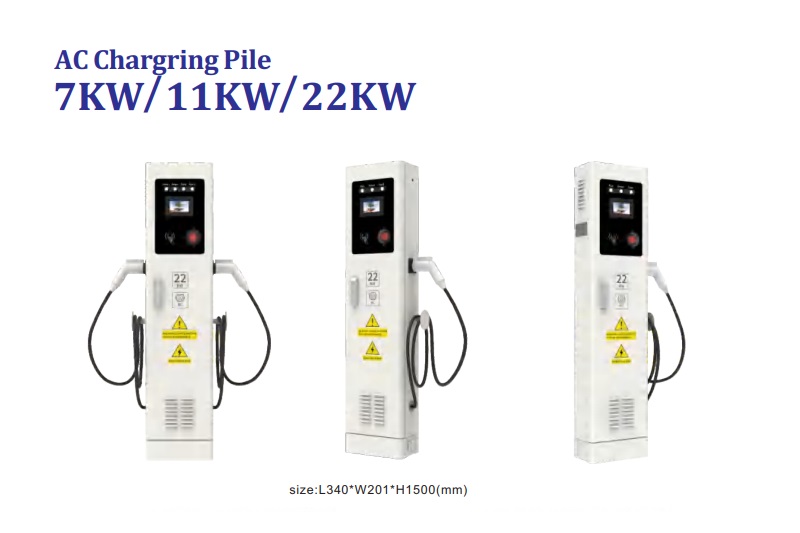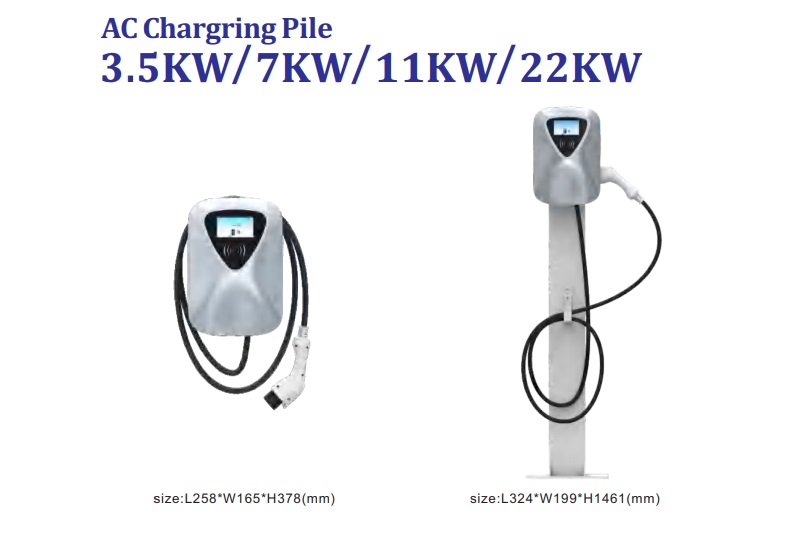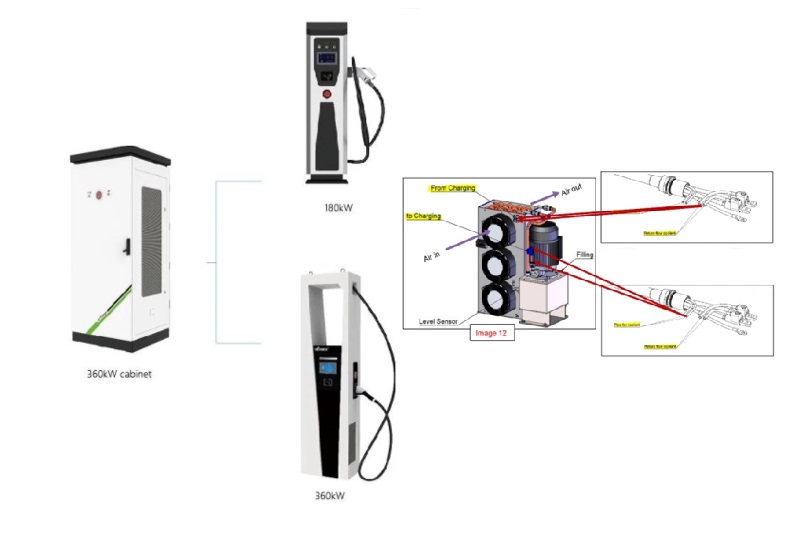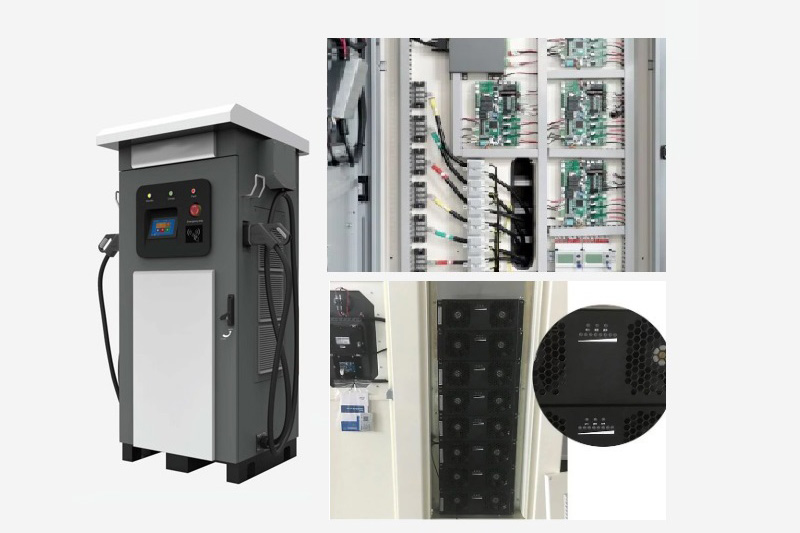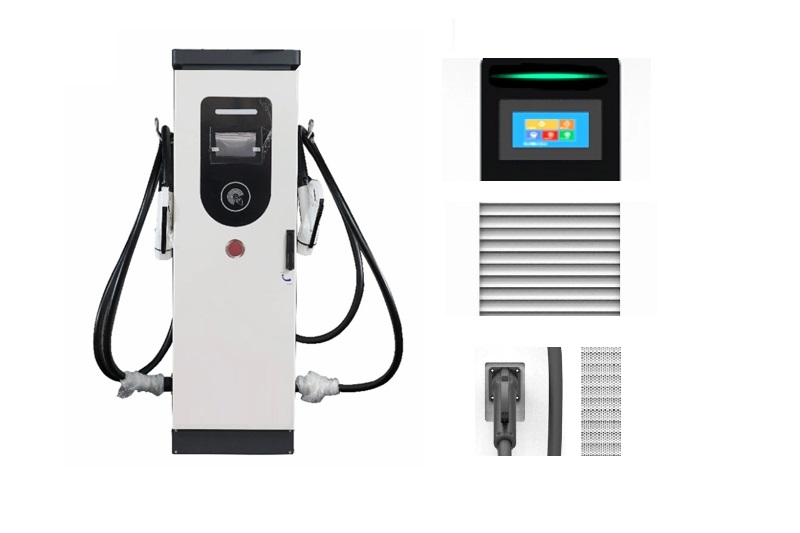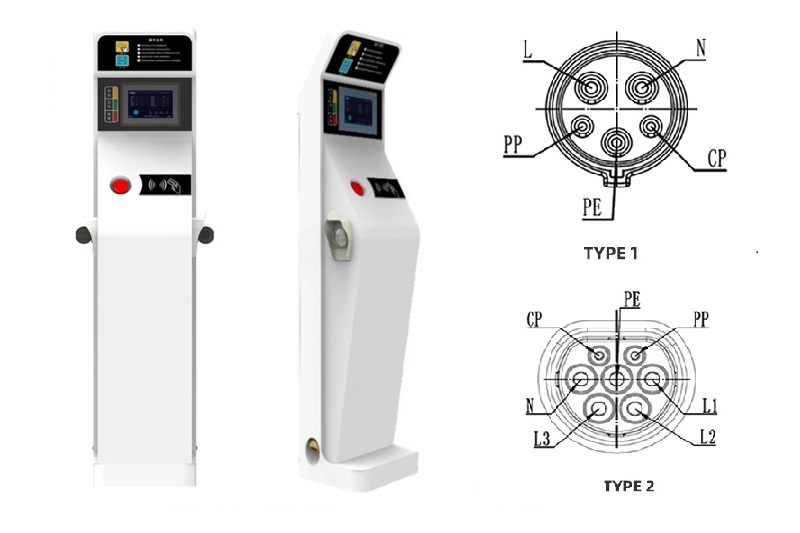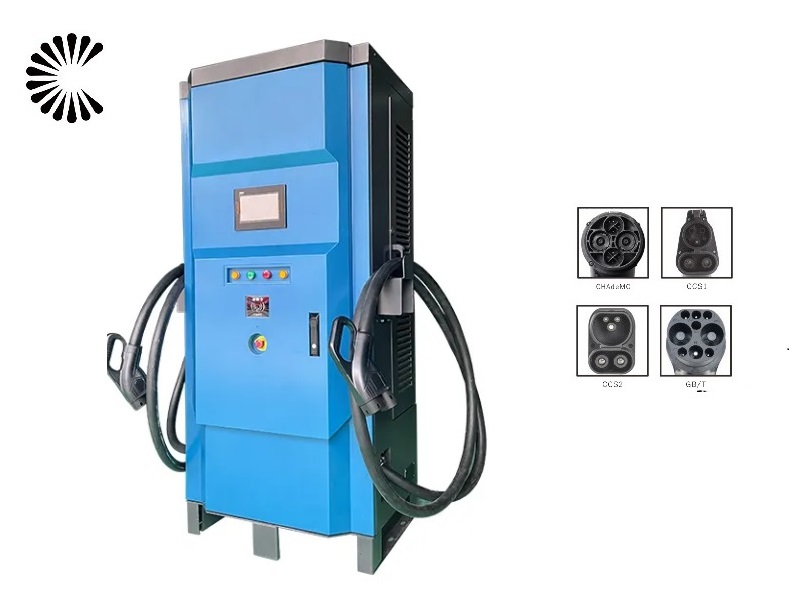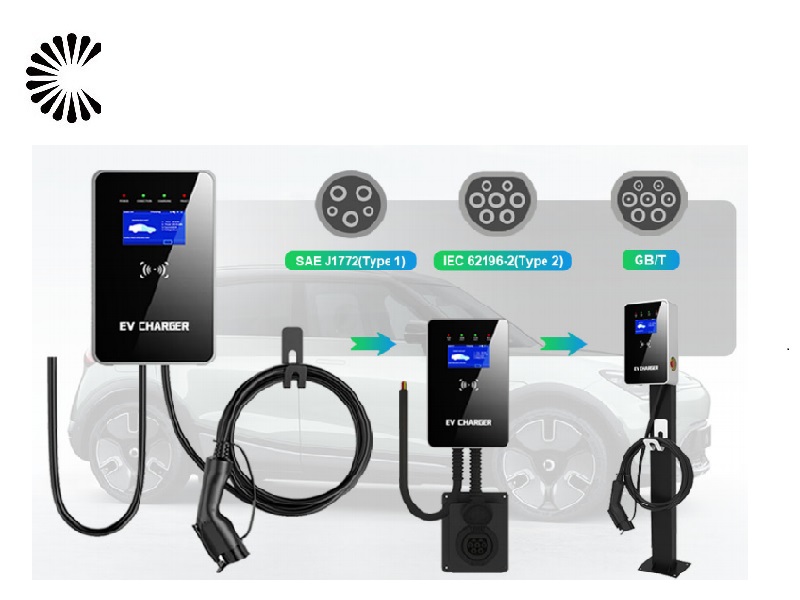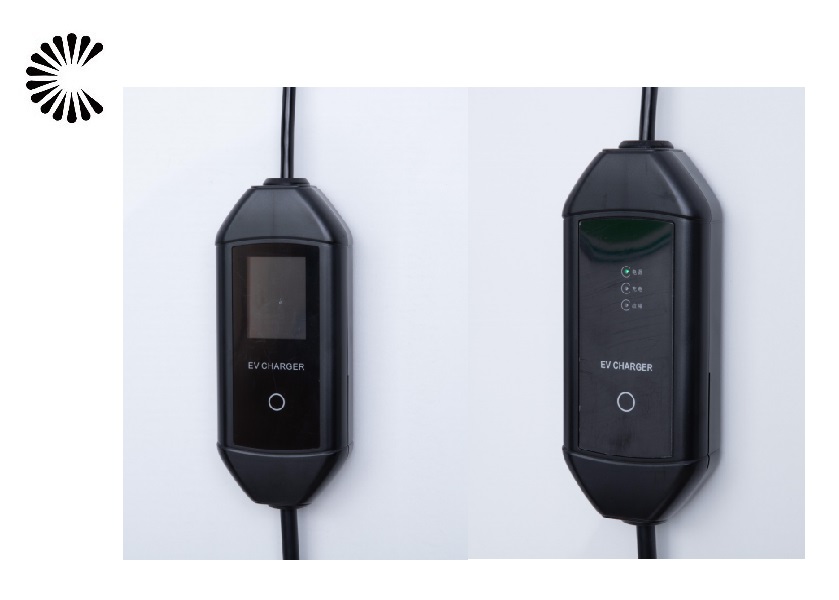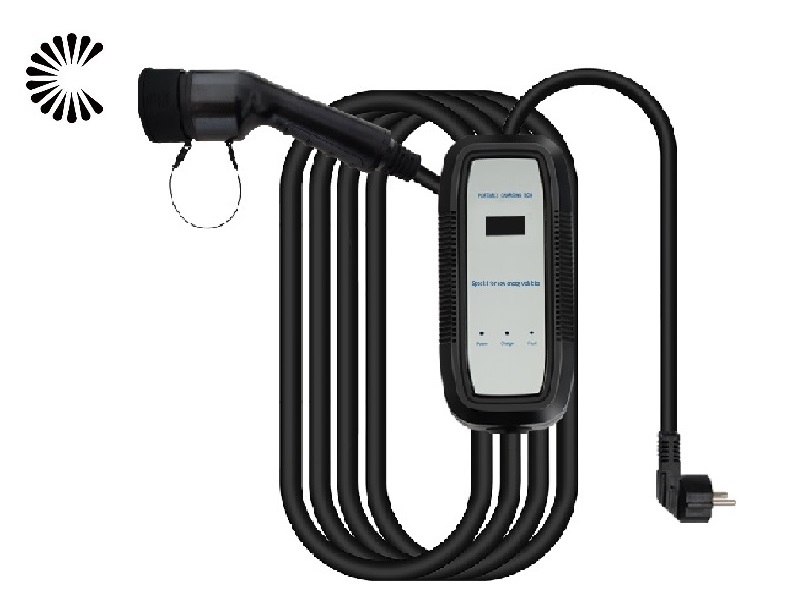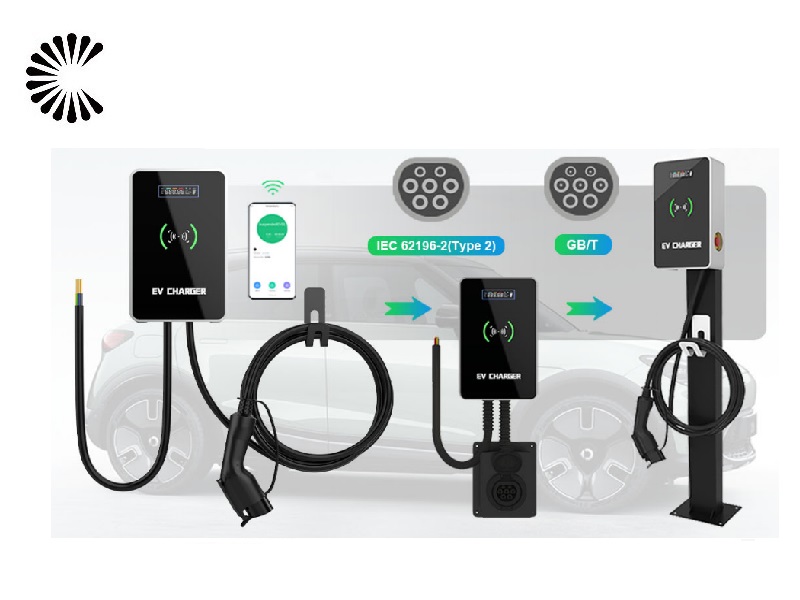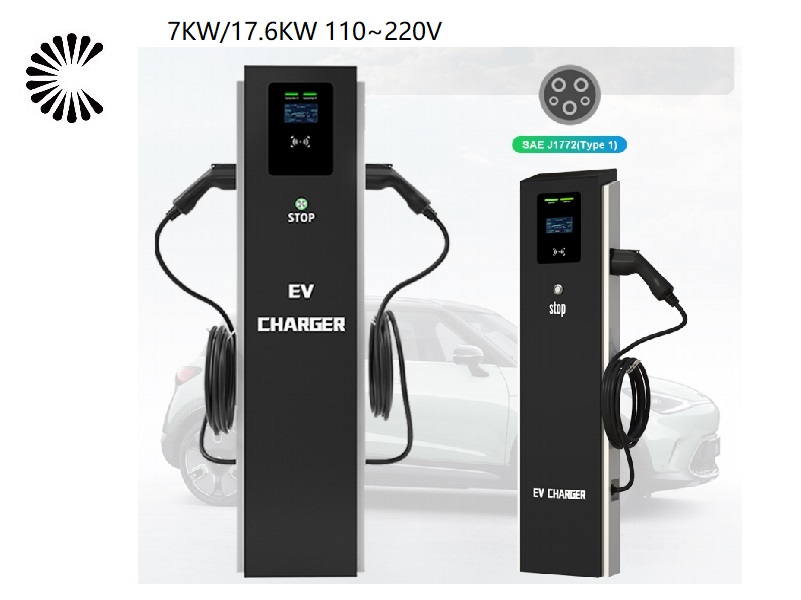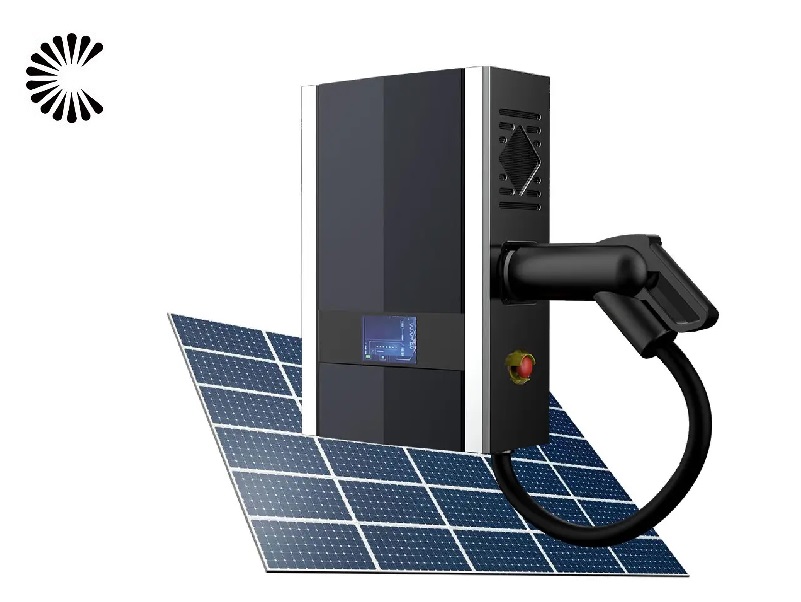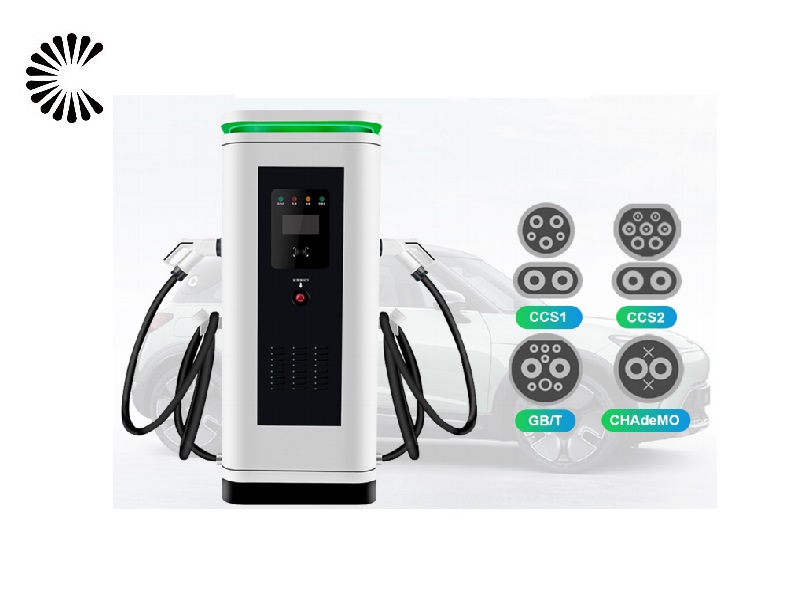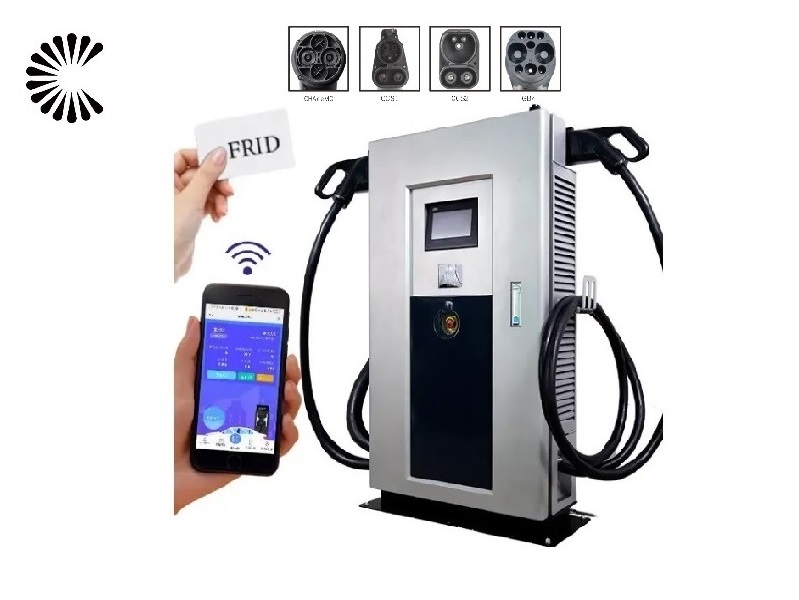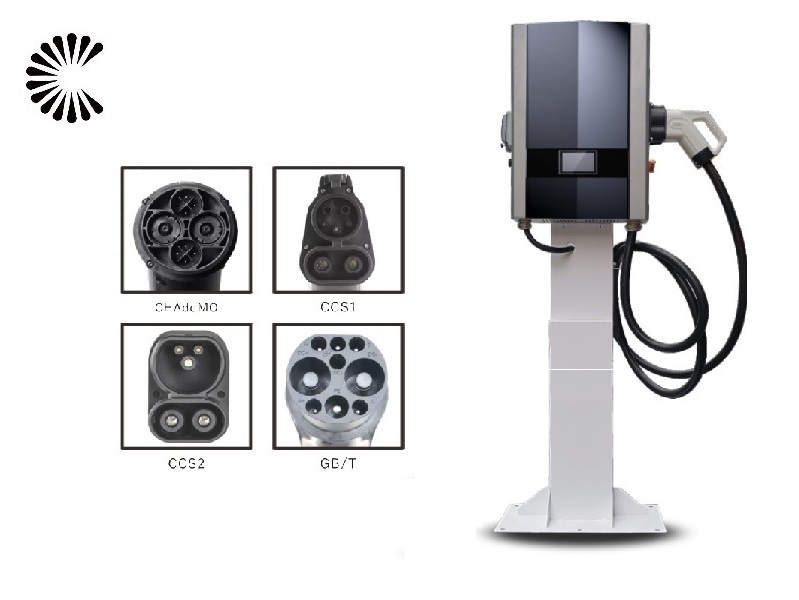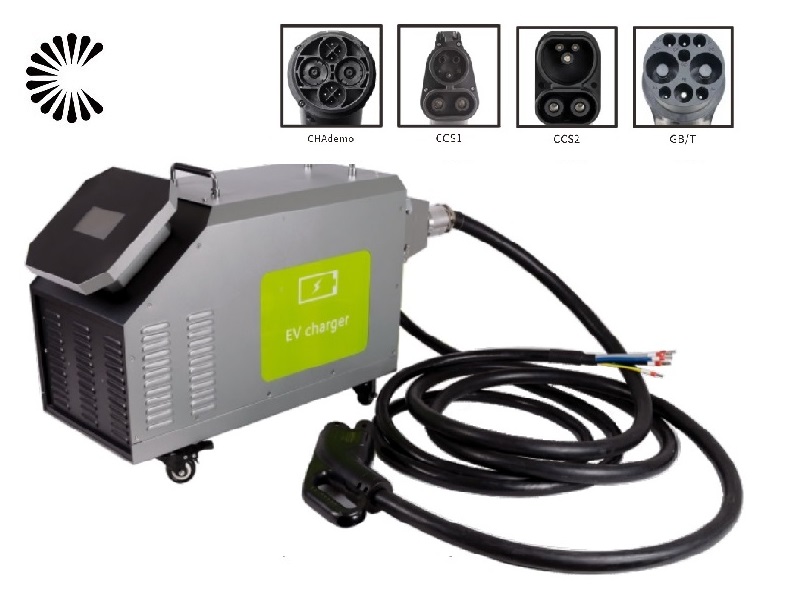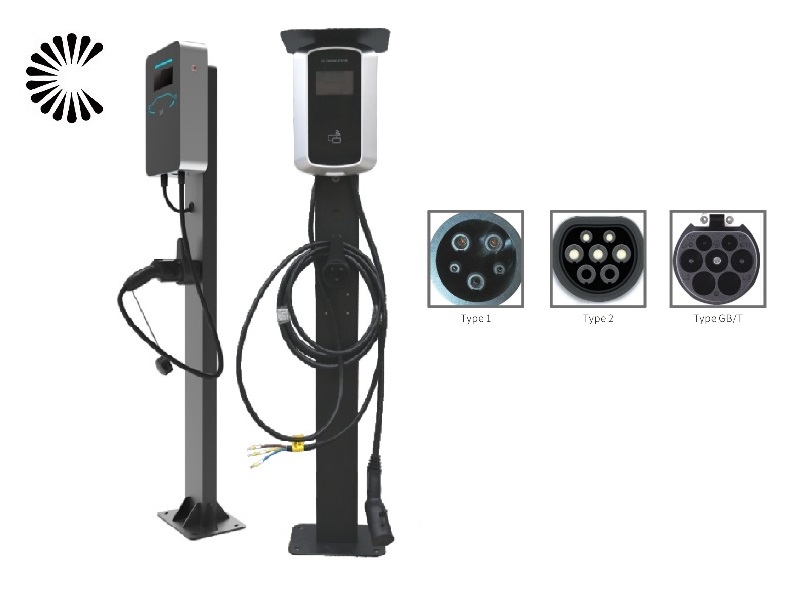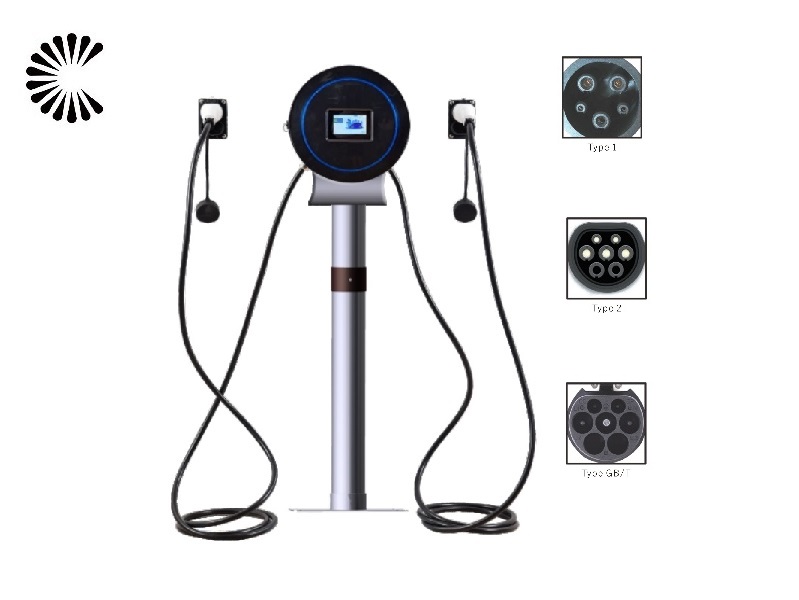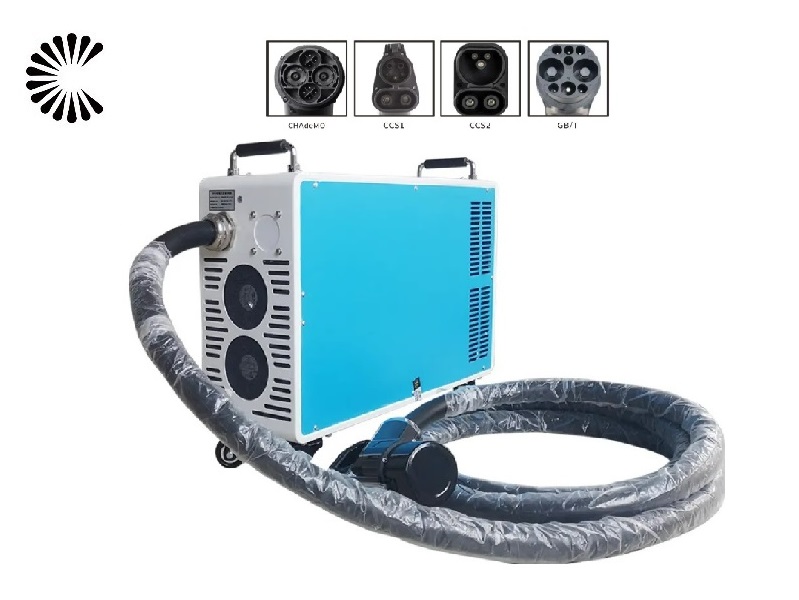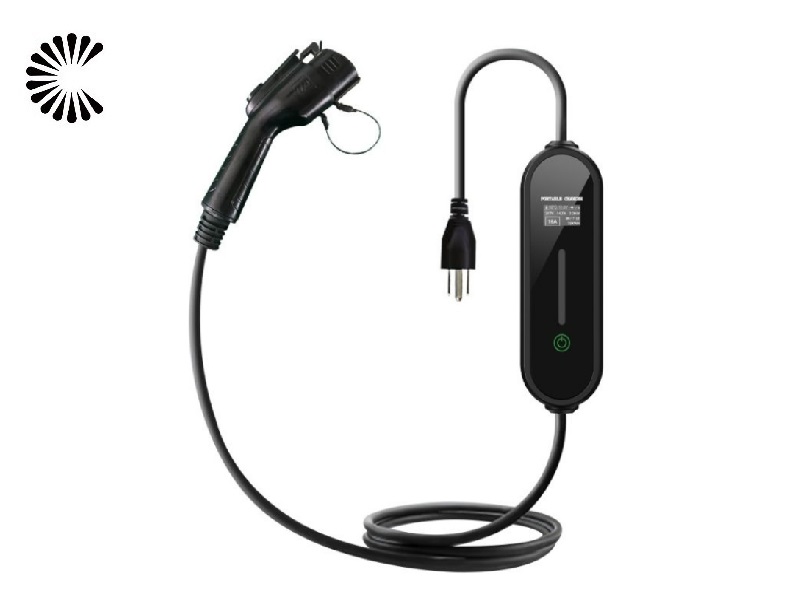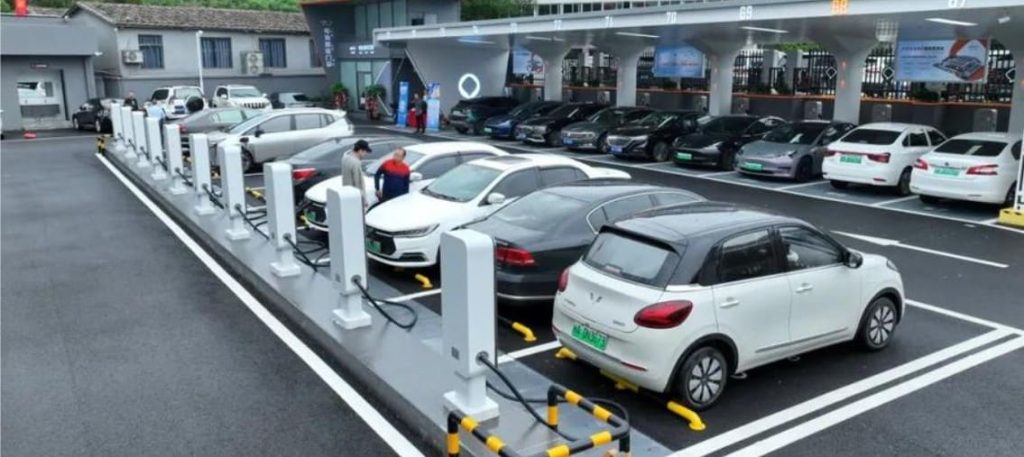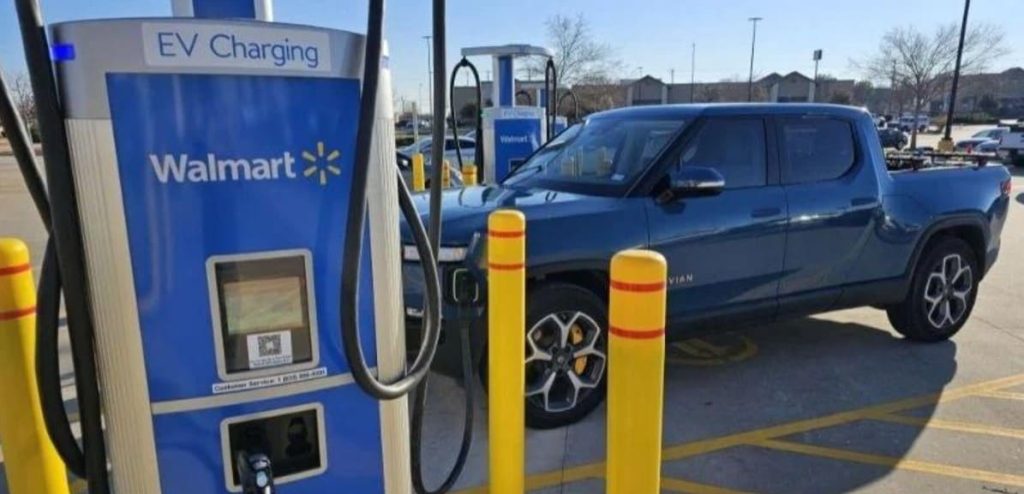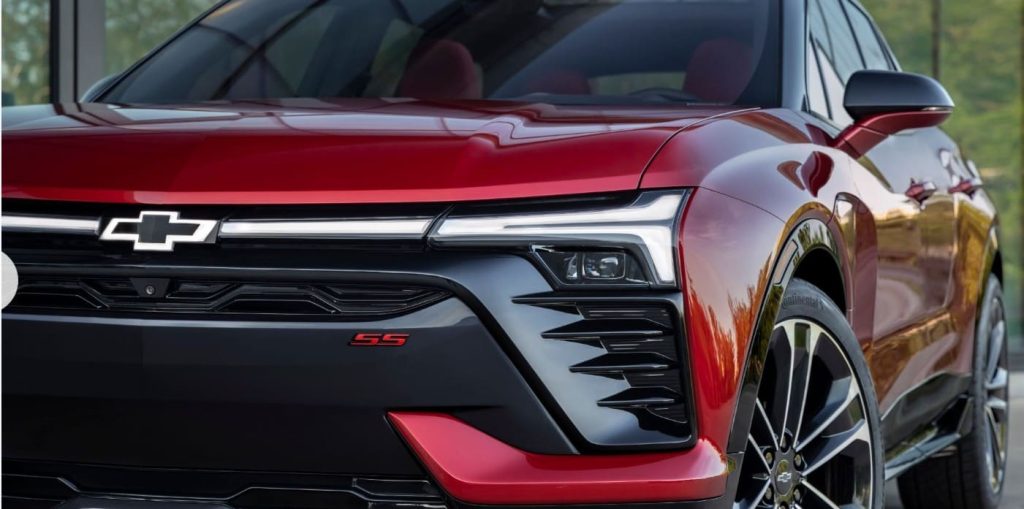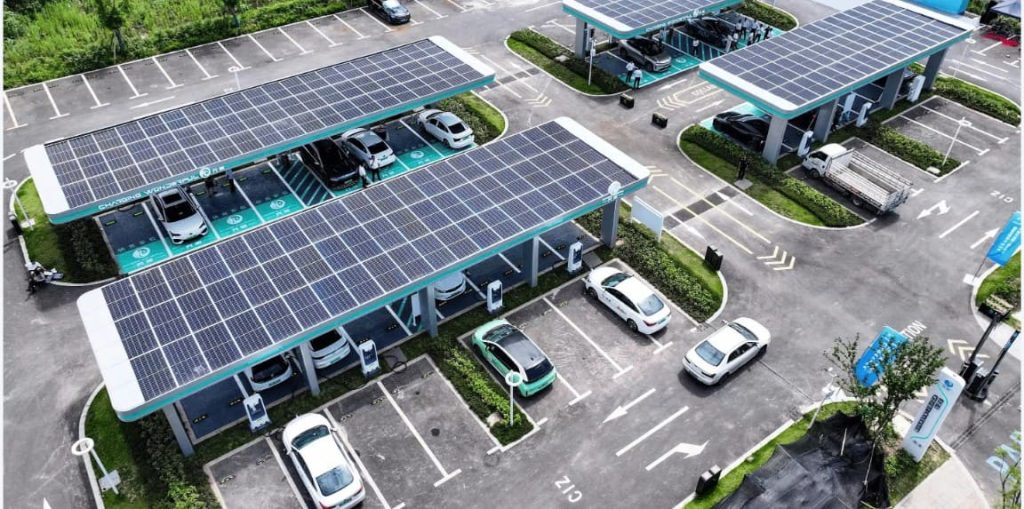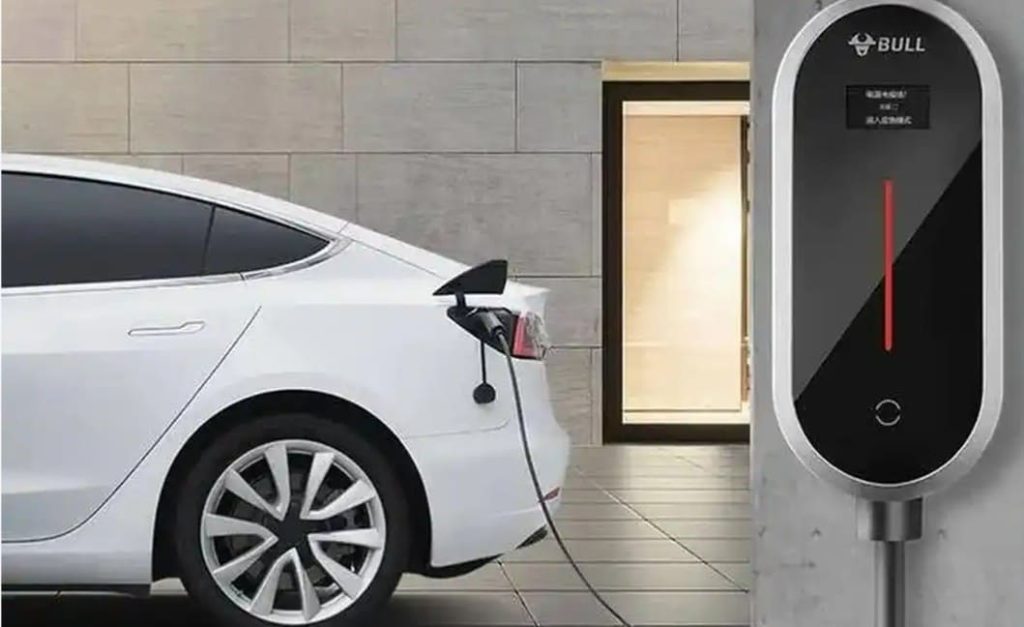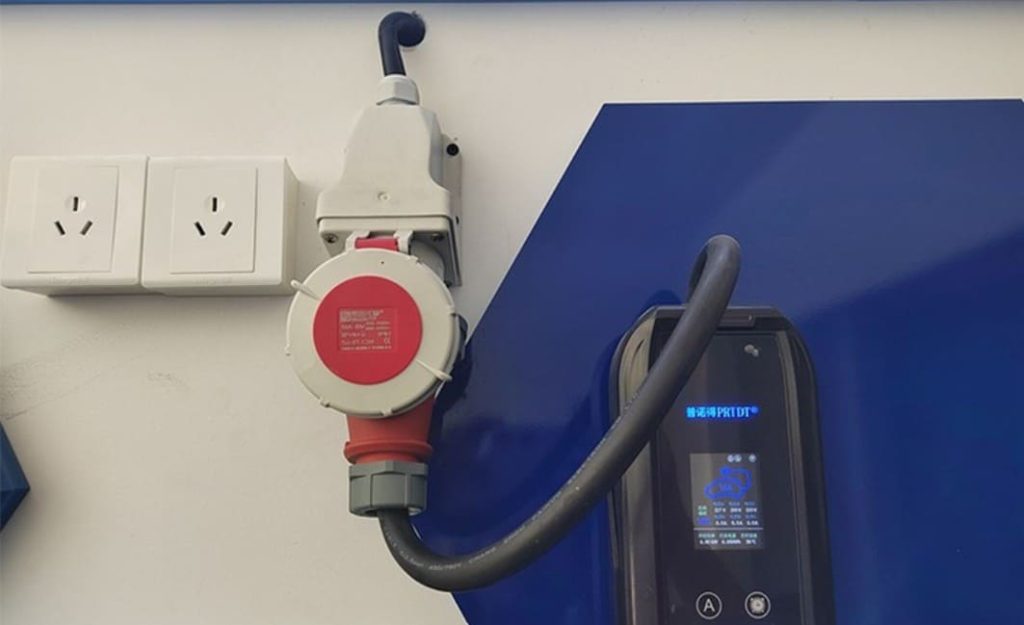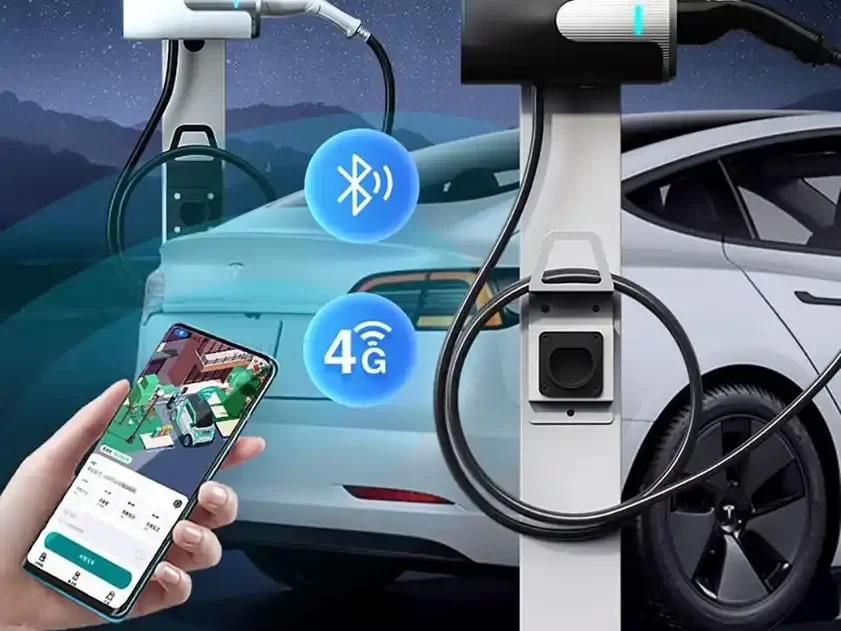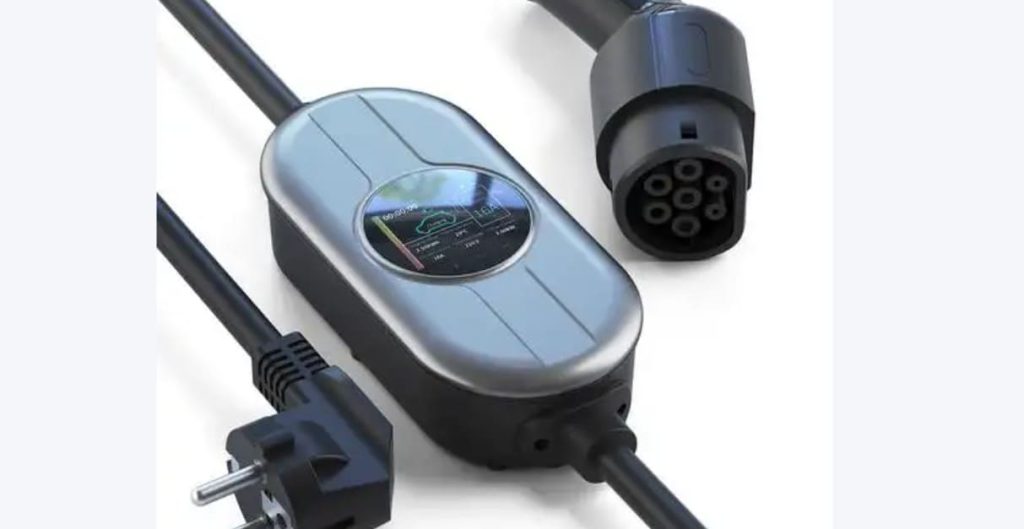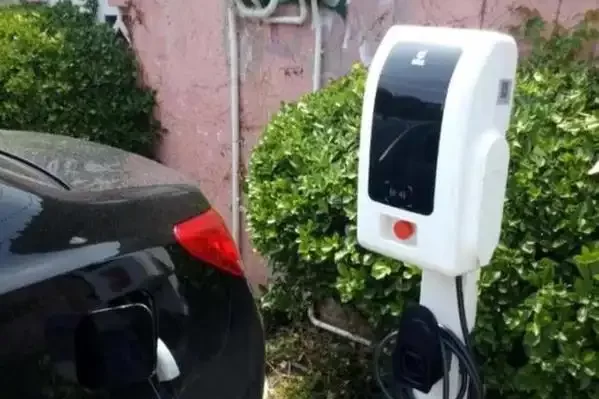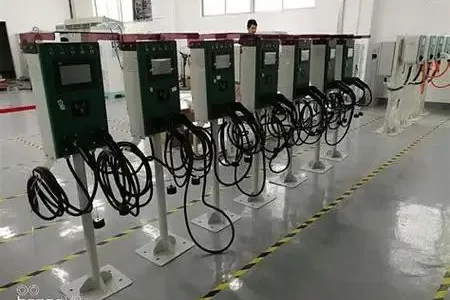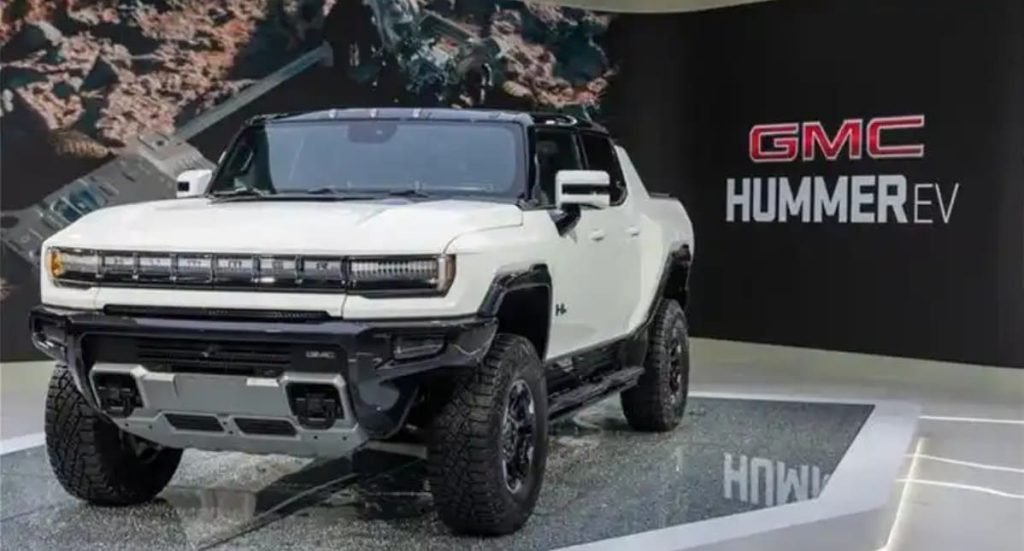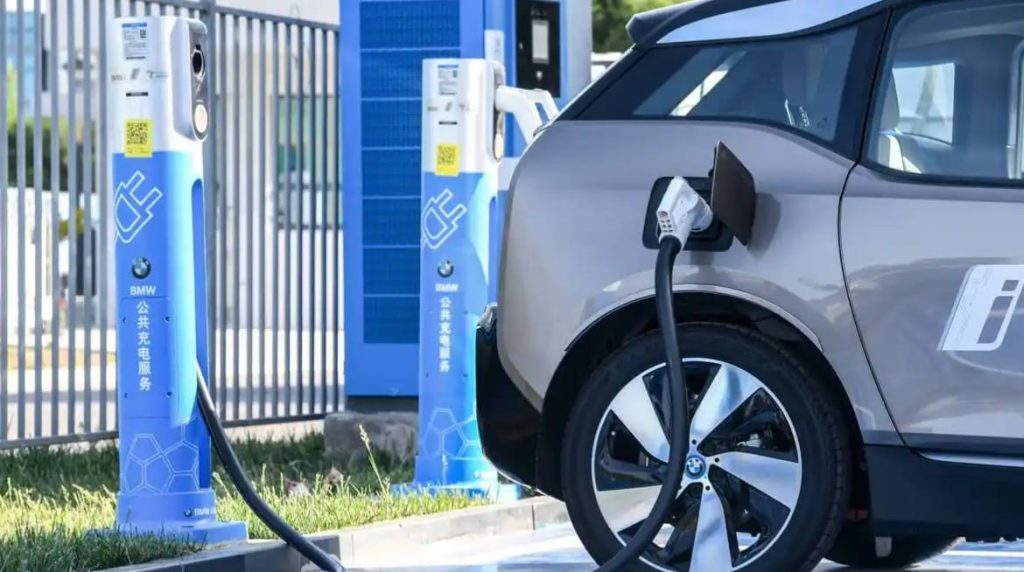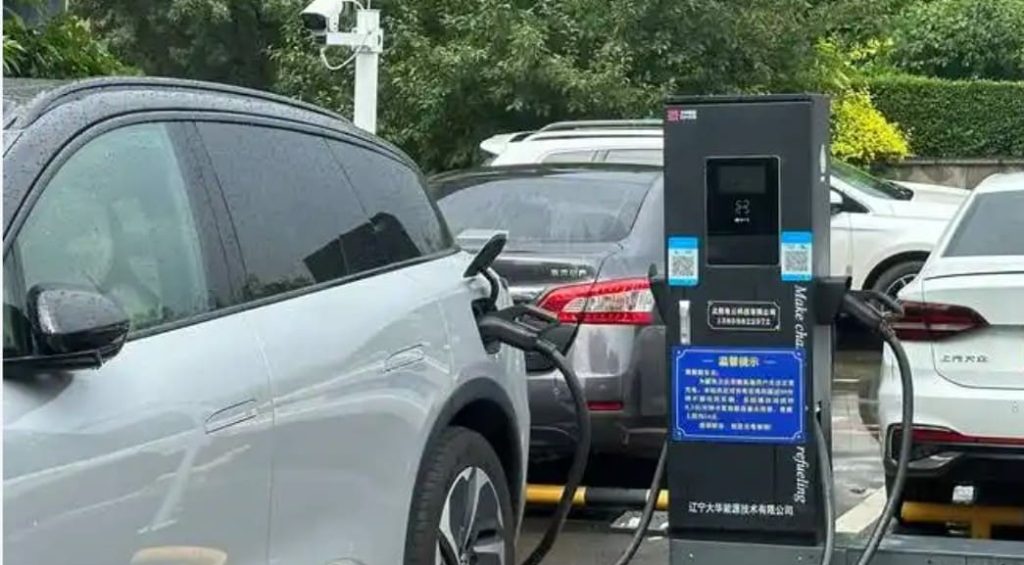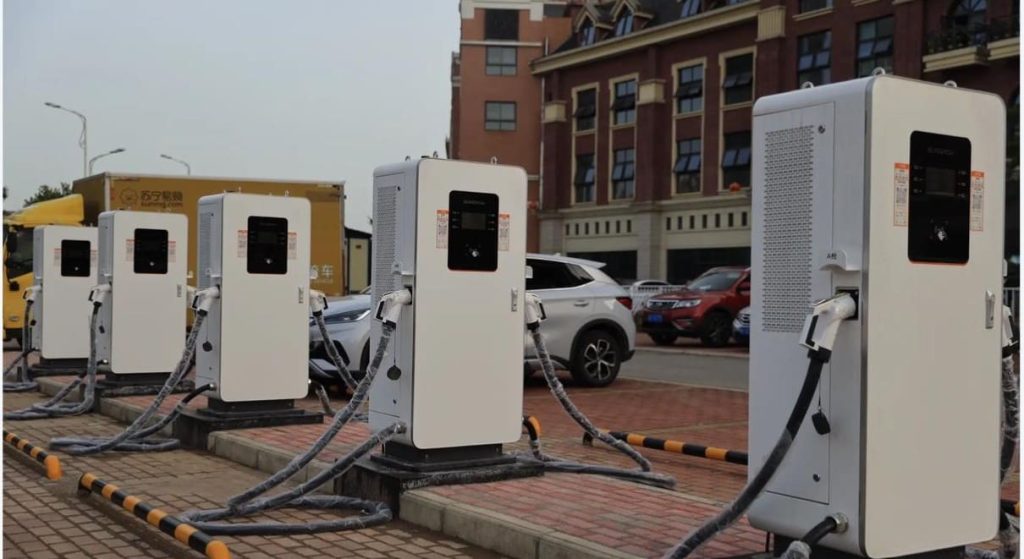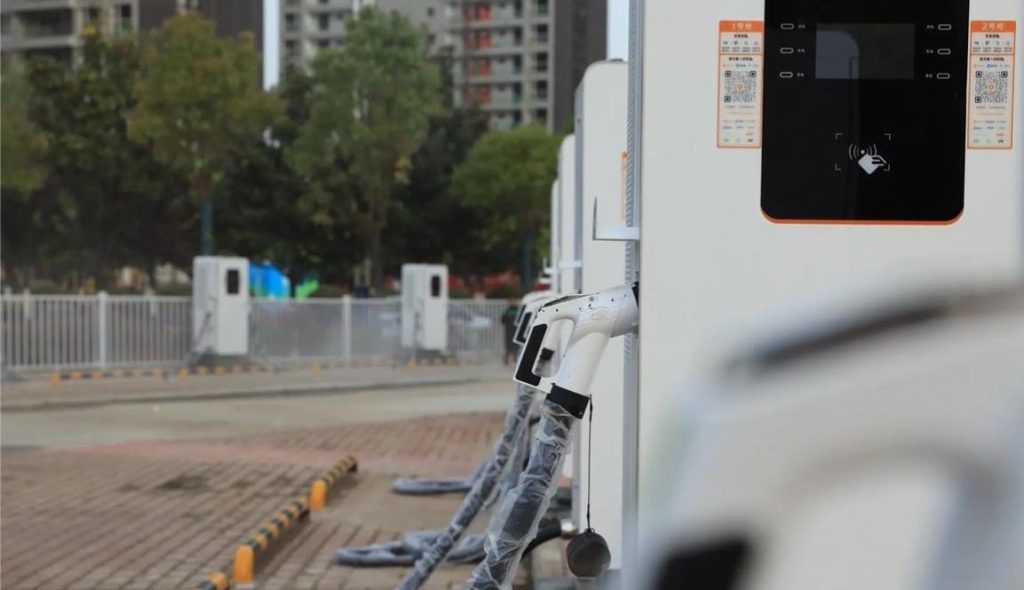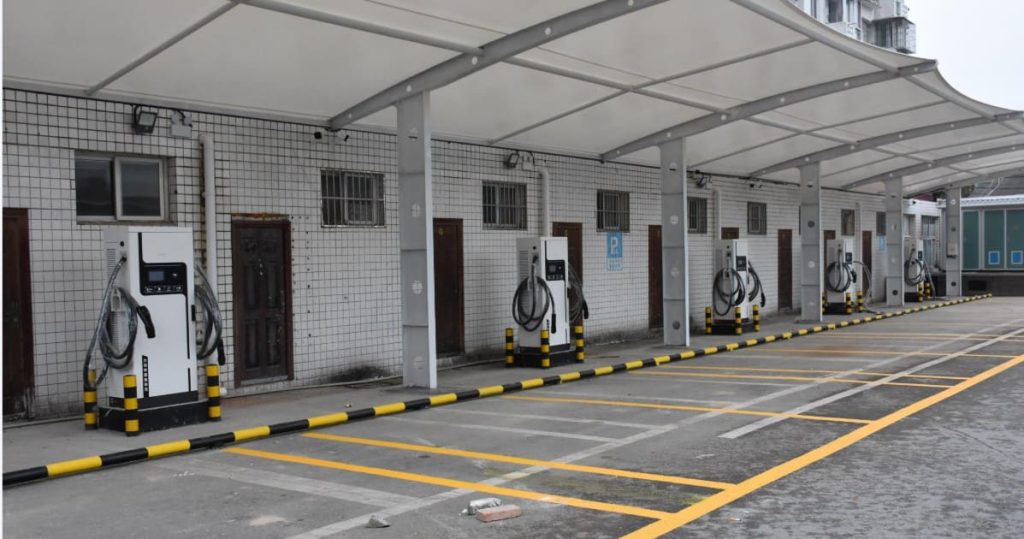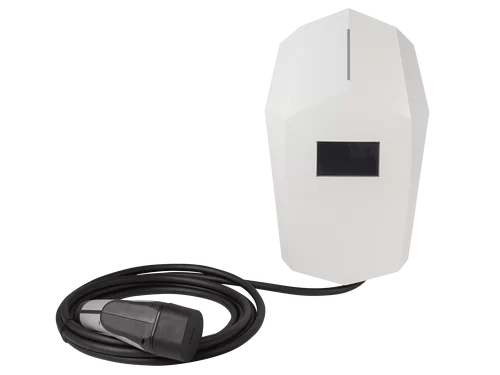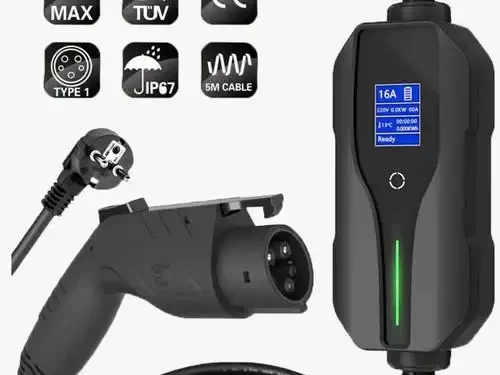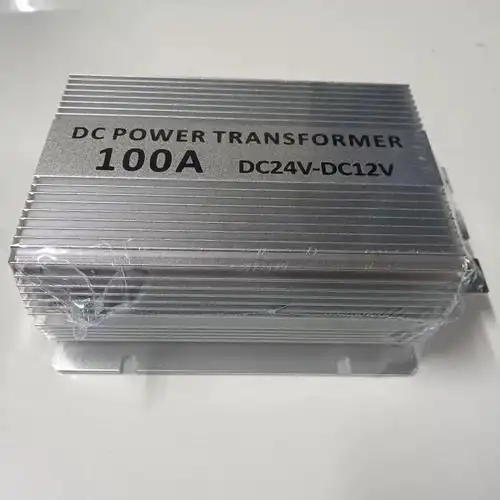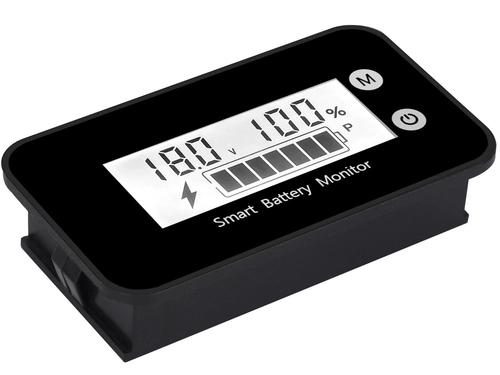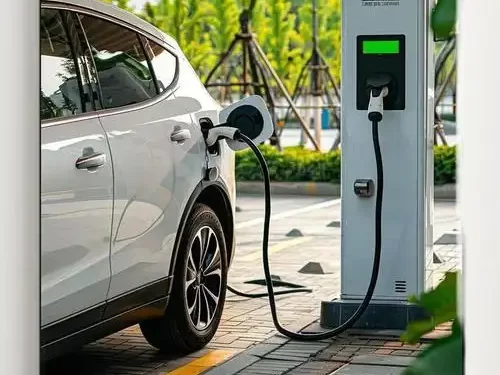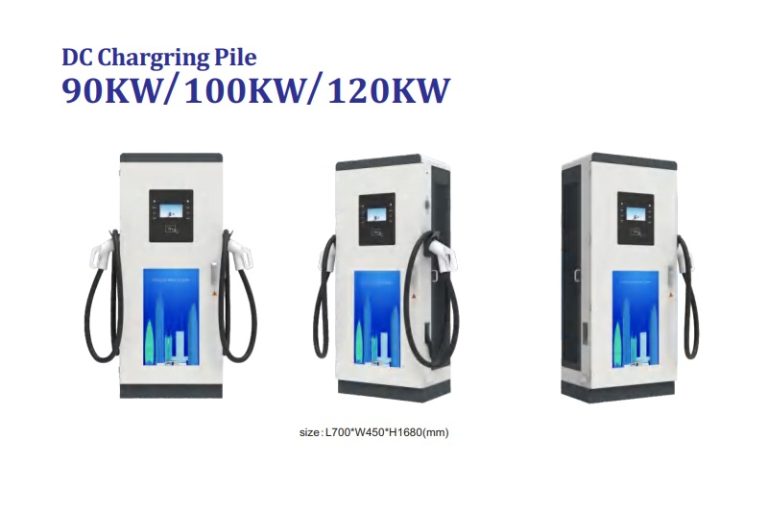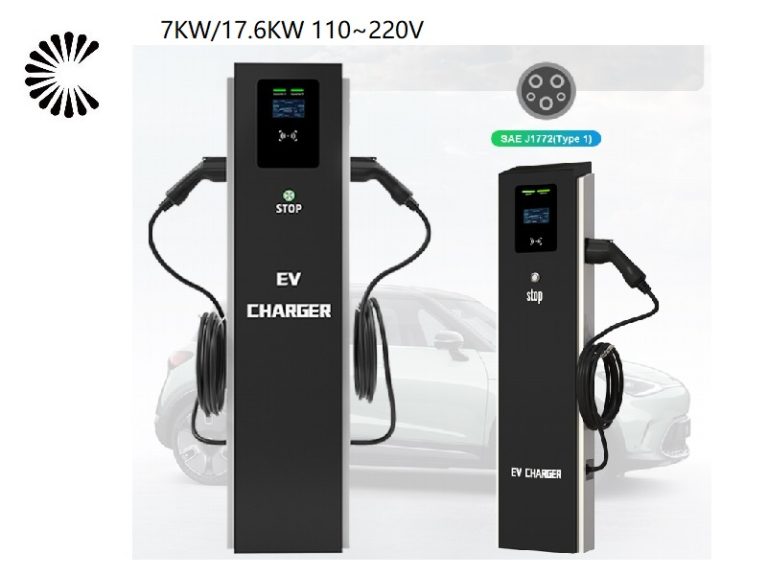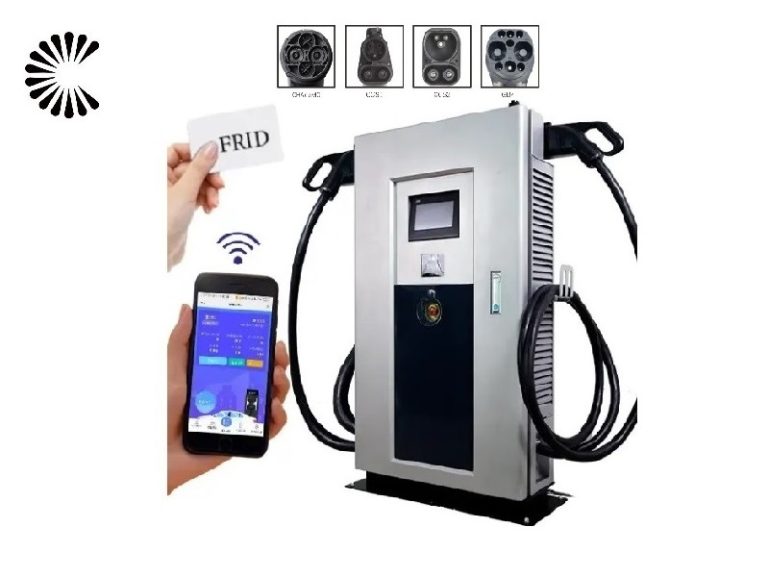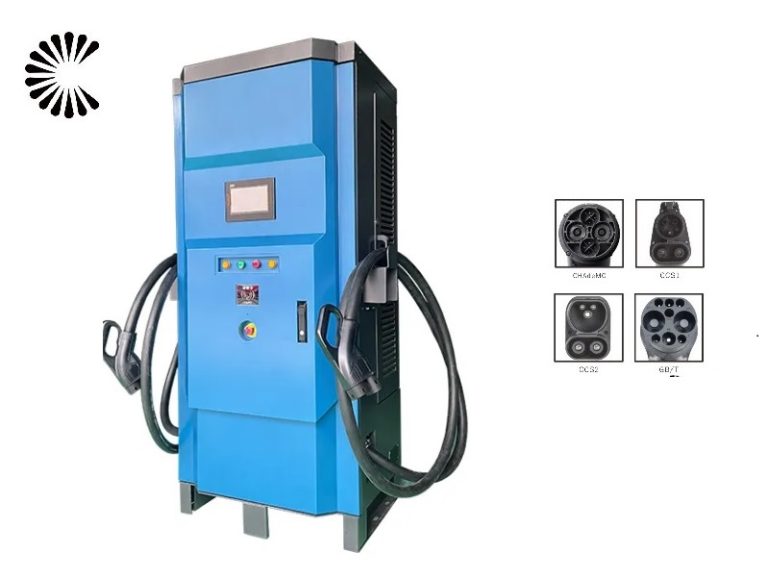240kw EV Charger
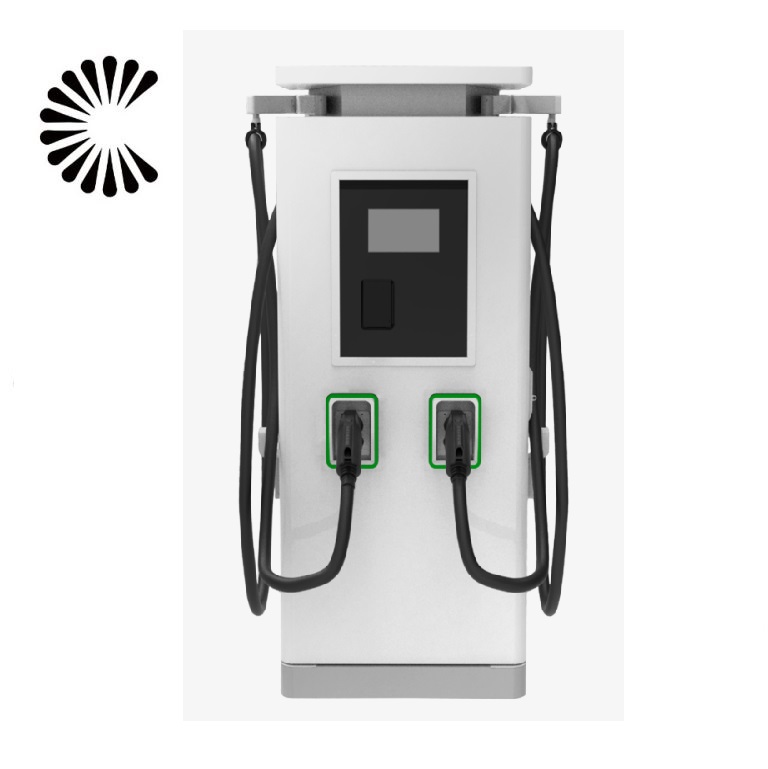
Highway gas, sevice station, Parking garage, commercial operators, EV infrastructure operations and service providers, EV dealer workshops
DC EV Charger
240kW Charging Pile: A High-Power Charging Device for New Energy Vehicles
The 240kW charging pile is a high-power charging equipment primarily used for fast charging of new energy vehicles.
Basic Concept and Functions
The 240kW charging pile converts AC power into DC power to supply new energy electric vehicles. It features specific control, display, and communication functions, enabling intelligent single/double-gun power adjustment and supporting multiple charging methods such as password, credit card, and WeChat/Alipay QR code scanning.
Technical Parameters and Application Scenarios
- Power: Maximum output power of 240kW, suitable for high-power EV charging.
- Charging Guns: Supports dual-gun charging, with each gun delivering up to 250A.
- Display: Equipped with a 7-inch touchscreen for user-friendly operation.
- Safety Protections: Includes emergency stop, over/under-voltage, overcurrent, insulation fault, and reverse battery connection protections to ensure charging safety.
- Applications: Ideal for commercial vehicles or users needing fast charging, such as gas stations or highway service areas.
Comparison with 120kW Charging Piles
- Power Difference: The 240kW charging pile has twice the power of a 120kW unit, enabling faster charging.
- Efficiency: It charges EVs more quickly, making it ideal for long-distance travel or time-sensitive users.
- Cost & Installation: Due to higher power, 240kW charging piles are more expensive and require stricter installation conditions, typically for commercial use.
Charging Speed of a 240kW Charging Pile
Detailed Analysis of Charging Speed
1. Typical Charging Time Data
- 20% to 80% Charge: Under ideal conditions, a 240kW charger can replenish this range in 15-20 minutes for most EVs (e.g., 80kWh battery), cutting time by ~50% compared to 60kW chargers.
- Real-world Examples:
- BYD Han EV (83.2kWh): 11m 58s (1%-80%).
- Tesla Model Y: 9m 23s (up to 80%).
- Real-world Examples:
- Full Charge Cycle:
- Low to 100%: 19-30 minutes (varies by model).
- BYD Han EV: 21 minutes (full charge).
- Avita 11: <30 minutes (20%-90%).
2. Charging Efficiency & Technical Principles
- Theoretical Capacity: 240kW can deliver 240 kWh/hour (ideal).
- Optimal Range: 20%-80% SOC allows peak charging speed; beyond 80%, power tapers for battery protection.
3. Key Factors Affecting Speed
| Factor | Impact |
|---|---|
| Battery Capacity | Larger batteries take longer but gain more range per minute. |
| Battery Temperature | Low temps may halve speed; high temps trigger BMS limits. |
| Charging Protocol | Incompatibility (e.g., GB/T 2011 vs. 2015) can reduce power. |
| Grid Stability | Voltage fluctuations hinder peak power output. |
| Dual-Gun Sharing | Simultaneous use may split power (e.g., 120kW per gun). |
4. Usage Recommendations
- Long Trips: Prioritize 800V-platform EVs (e.g., Xpeng G9) for 15-minute 300km top-ups.
- Daily Use: Stop at 80% for optimal efficiency.
- Extreme Weather: Pre-condition battery to ~25°C for 20-30% faster charging.
How to Choose the Right 240kW Charging Pile?
Comprehensive Guide
1. Top Brands & Models
| Brand | Key Features | Model | Best For |
|---|---|---|---|
| Bull | High safety, wide service | 10M | Gas stations |
| Zhongke | Govt-certified tech | ANDC1-240kW | Urban stations |
| Sineng | Extreme-weather stability | DCL240Q | Highways |
| LiKe | Heavy-duty solutions | Liquid-cooled | Logistics hubs |
| Huawei | High-voltage leader | 600kW ultra-fast | Premium sites |
2. Key Selection Criteria
- Performance: 5%-90% in ~41 minutes; GB/T compatibility; smart features (APP/OTA).
- Installation: 380V power, ≥456A circuit, 4m² space, safety certifications.
- Cost: Unit price ¥94,900–268,009; bulk discounts available.
3. Scenario-Based Recommendations
- Highways: Dual-gun + liquid cooling (e.g., 232kW/h实测).
- Malls: Multi-gun setups (e.g., 8-gun systems).
- Fleets: Heavy-current models for trucks.
4. Policies & After-Sales
- Subsidies (2025): Up to ¥800/kW (national); regional bonuses (e.g., Shenzhen: ¥500/kW for 480kW+).
- Warranty: 5-8 years (premium brands).
5. Decision Flowchart
- Define needs (commercial/public).
- Budget (include subsidies).
- Site assessment (power capacity).
- Compare 3-5 brands.
- Test before purchase.
- Review contracts (focus on service terms).
Are 240kW Charging Piles Expensive to Maintain?
Maintenance Cost Breakdown
1. Cost Structure
- Basic: ¥1,000–3,000/year (varies by usage/brand).
- Advanced: Up to ¥2,000–5,000/repair (e.g., cooling system, gun replacements).
2. vs. 120kW Piles
| Metric | 240kW | 120kW |
|---|---|---|
| Unit Cost | ¥250K–300K | ¥30K |
| Annual Cost | ¥18K–25K | ¥5K–10K |
| Complexity | Higher (cooling upkeep) | Modular/easier repairs |
3. Real-World Cases
- Commercial Stations: ~¥20K/year (8–10% of unit cost).
- Common Issues: Clogged cooling (¥300/cleaning), gun wear (¥800/replacement).
4. Cost-Saving Tips
- Opt for modular designs.
- Schedule preventive maintenance.
- Allocate 10–15% of unit cost annually for upkeep.
Pictures
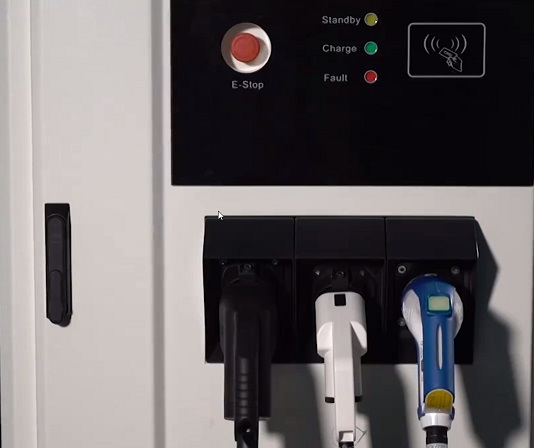
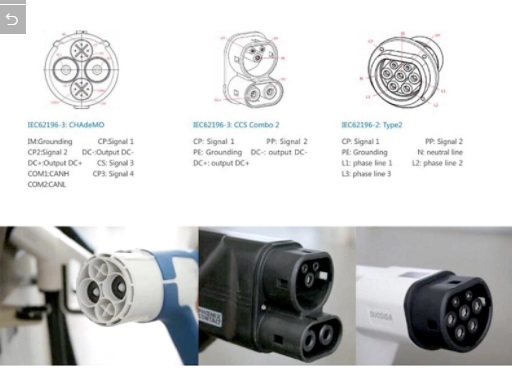
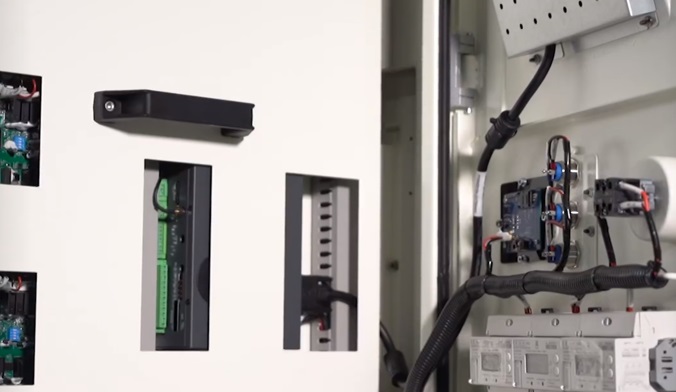

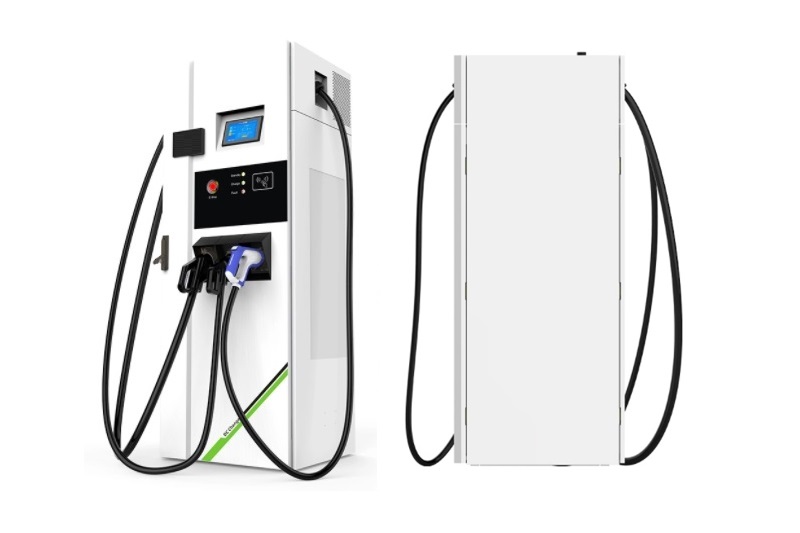
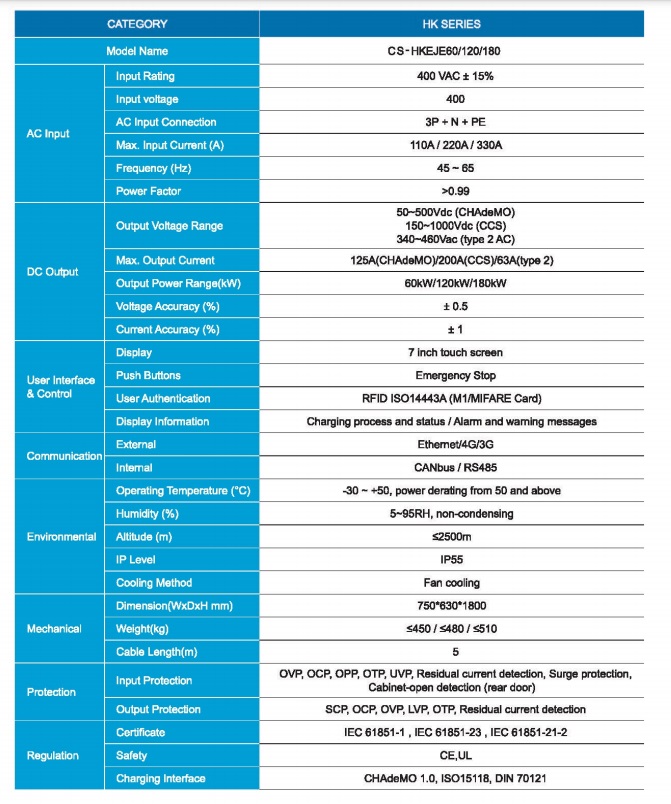
240kW Charging Pile Feature
DC Charging Device with Specific Control, Display, and Communication Functions for Hydrogen Storage & Charging Applications
Product Features:
- High-Performance Output
- Maximum efficiency up to 95%, low standby power consumption.
- Wide-range constant power output for stable charging.
- Smart & Efficient Operation
- Supports scheduled start, QR code scan, card swipe, password, and MN code activation.
- Intelligent single/dual-gun power allocation for flexible charging.
- 7-inch touchscreen for user-friendly interaction.
- BMS auto voltage switching for compatibility with different battery systems.
- Real-time status monitoring & diagnostics.
- OTA (Over-the-Air) upgradeable for firmware optimization.
- Safety & Reliability
- Quick-swap dust-proof structure for easy maintenance.
- IP54 protection rating (dust & splash resistant).
- Isolated high/low-voltage compartment design for enhanced safety.
- Integrated with 20+ charging protection technologies (overvoltage, overcurrent, short-circuit, etc.).
Key Applications:
- Hydrogen energy storage & charging systems
- Fast-charging stations for hydrogen-electric vehicles
- Commercial & industrial energy storage solutions
This advanced DC charging system ensures high efficiency, intelligent control, and robust safety, making it ideal for next-generation hydrogen-powered charging infrastructure.
Would you like any modifications or additional details?
Transportation
In the course of transportation, the charger should be packed firmly and intact in
a solid wooden packing box, and the direction of loading and unloading should be marked.
The charger should not be stored and transported upside down. In the course of
transportation, corresponding tightening measures should be taken to avoid strong
vibration and bump damage to the outer packaging of equipment. After arrival of the
goods, user should check whether there is any damage. If there is any transport damage,
user should consult with the transport party or our company to solve it. Check whether
the contents in the box are in conformity with the packing list immediately after
opening the box.
The packaged equipment should be stored in the room where the relative humidity is
less than 80% and the ambient air temperature is -20℃ to +55℃. Storage places should
be dry, clean and airy, and can prevent the invasion of harmful gases. It is strictly
forbidden to store corrosive articles in the same place.
Note: It is strictly forbidden for non-professionals to disassemble equipment
components.

Certification
Our Factory have certifications such as CE ISO Certifications. TUV /UL /CE Certificated for Overseas on cable and wire.
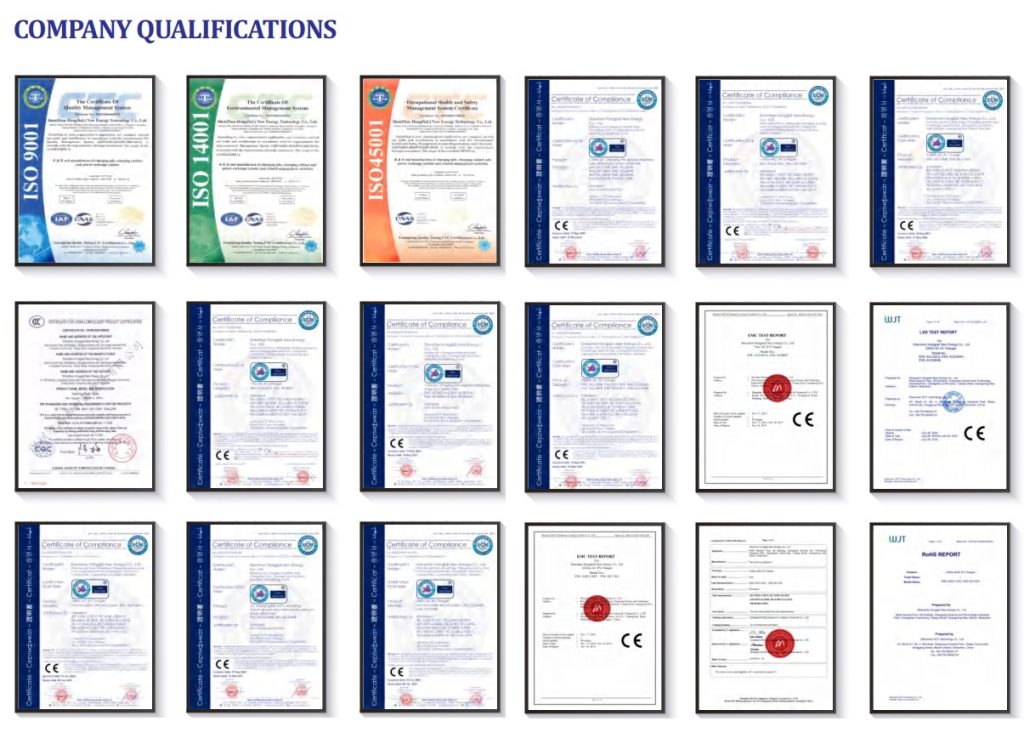
Maintenance
- Charger body is easy to be fixed with anchor bolts to prevent it from inclining
and dithering due to external and human factors. - Shading and rainproof measures should be taken for chargers. It is suggested
to install shelters outdoors. - Check regularly whether all bolts in chargers are tightened, whether the connecting wires are loosened or not, or the connection is not firm, etc.
- Check for short circuit.
- Check whether the emergency stop button is available.
- Attention should be paid to lightning protection to ensure effective shielding
and reliable grounding of chargers. - When in use, the output voltage and current of the charger should be controlled within the nominal range to ensure that the charger works in the state of maximum efficiency.
- When the charger stops using, the charging output should be stopped first, then the cable should be wrapped and put back in place.
Note: During the transportation, the chargers should be packed firmly and the
direction of loading and unloading should be marked. It is forbidden to store and
transport chargers upside down. Corresponding tightening measures should be taken
to avoid strong vibration and turbulence damage to the outer packaging of equipment.
Why choose us
- Decades of Experiences: As a Chinese academy of sciences park high-tech enterprise and manufactory, our factory establised since 2002, with over 10 years factory development, our factory became famous brand in China. We believe new energy is the future, better to environment and more economical to our life. We are an integrated hi -tech electronic company. “Passion, Honesty, Sound service, Keen cooperation and Development” are our goals. We are here expecting friends all over the world!
- Various Charging Products: Full range of charging products as well as charger accessories. Provide full support to customer after-sale services. Most of the model of produts are able to be customized.
- For all the products that we shipped have 1 year warranty period as well as life time spare parts and accessories with competitive price .
- Accept customized OEM ODM products.
- Experienced foreign trade team to handle the shipment and after-sale services.
- Efficient and fast supply chain.
Factory Introduction
Our factory is a national high-tech enterprise as well as tech little giant enterprise of Hubei
Province, which is specialized in R&D production, marketing of smart charging stations, as well
as the overall charging system solutions. The industrial Park has covered an area of 56,000m2.
The company has nearly 150 employees,30% of which are core R&D staff.
Factory has created a complete industrial chain and covered all the four international charging
standards as GB/T, CCS2, CCS1 as well as CHAdeMO. Products covered three series of Ac DC
and super charging systems. Its brand EV chargers have already been applied to more than200
cities in China and over 27 countries and regions around the world. By virtue of over 20 years
R&D experiences of electronic power control technology, the company has developed multiple
independent intellectual property rights of core technologies such as the whole charger design,
charging control system, billing and metering system, remote monitoring and management
platform and mobile terminal charging service, which help it accumulated enriched experience in R &D and manufacturing fields.
| Certificate: | CE RoHS FCC Certificate | Warranty: | 12 Months |
| Input Voltage: | 110V-380V | Output Voltage: | 0-750V |
| Working Temperature: | -25℃-55℃ | Application: | Home Use/Commercial Use |
| OEM Service: | Color,Logo,Package, cable length, cable color | Supply Ability : | 4000 Piece/Pieces per Week |
| Packaging & Delivery: | Shanghai Port | Capacity | 4000 Piece/Pieces per Week |
| Lead Time: | Quantity(units) 1 – 5 5 working days | Factory Type | Supplier |
| Country / Region | China/Gungdong | Main Products | EV Charging Station, EV Charging Cable, EV Charging Connector |
| Factory employees | Over 100 people | Total Annual Revenue | Above US$100 Million |
| Main Markets | Europe South America | Connection: | type 1 or 2 plug |
| Mass production price | Negotiable | Charger Capacity | 3.5kw~480kw |
| Current | DC/AC | Plug type | Type 1,2,CHAdemo/CCS-2/CCS-1 |
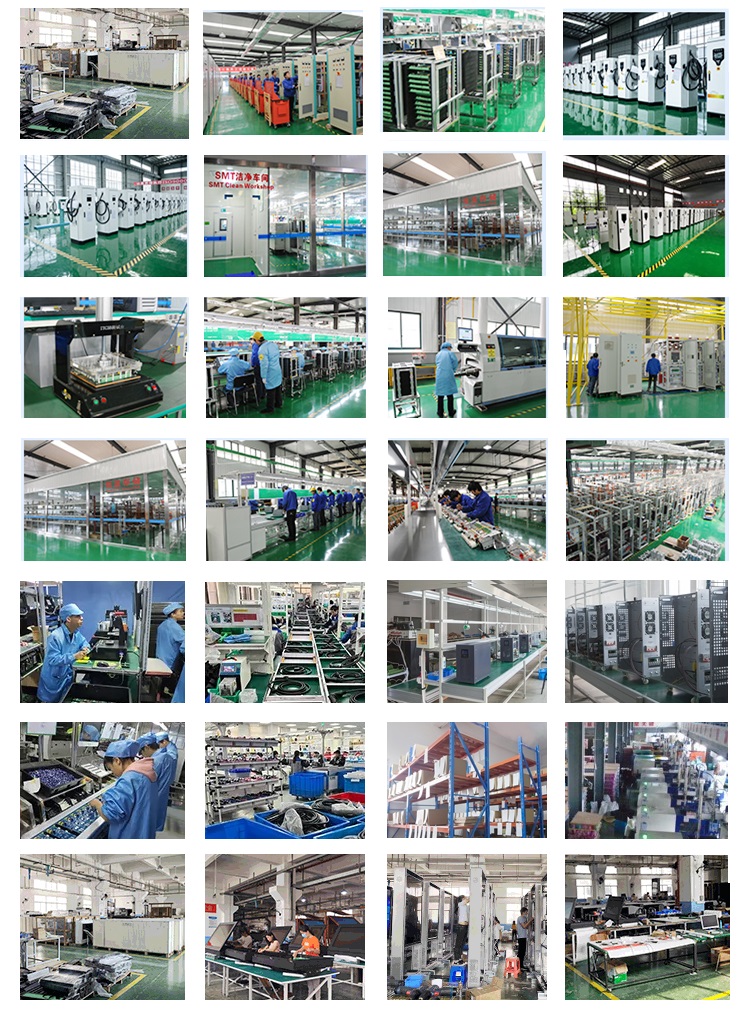
3.5~22KW EV Charger
60KW EV Charger
100KW~150KW EV Charger
240KW EV Charger Wholesale Manufacturer In China
As a leading 240KW EV Charger manufacturer, we take pride in providing cutting-edge charging solutions for electric vehicles. With a focus on quality and innovation, we ensure that our chargers meet the highest industry standards, delivering rapid and reliable charging experiences. Our team of dedicated engineers works tirelessly to enhance the efficiency and user-friendliness of our products, promoting sustainable transportation for a greener future. From public charging stations to private installations, we cater to diverse needs, empowering EV drivers to embrace a cleaner, more sustainable lifestyle. Join us in driving the electric revolution forward with our state-of-the-art charging solutions.
Related Products
Related Articles
Contact Us
Frequently Asked Questions (Click to see more FAQ)
-
Are you a factory or trading company?
We are a professional manufacturer of new and sustainable energy applications for over 20 years.
-
What is the warranty?
Warranty period is 12 months. In this period, we will supply technical support and replace the new parts by free,customers are in charge of delivery.
-
What is the packing method?
Generally, we pack our goods in brown cartons. If you have legally registered patent, we can pack the goods in your branded boxes after getting your authorization letters.
-
What is your terms of payment?
T/T 50% as deposit, and 50% before delivery. We’ll show you the photos of the products and packages before you pay the balance.
-
What is your terms of trade?
EXW, FOB, CFR, CIF, DAP,DDU,DDP
-
How about your delivery time?
Generally, it will take 3 to 7 working days after receiving your advance payment. The specific delivery time depends on the items and the quantity of your order.
-
Can you produce according to the samples?
Yes, we can produce by your samples or technical drawings. We can build the molds and fixtures.
-
What is your sample policy?
We can supply the sample if we have ready parts in stock, but the customers have to pay the sample cost and the courier cost.
-
Do you test all your goods before delivery?
Yes, we have 100% test before delivery.
-
What’s the difference between Movable Charger and Wallbox Charger?
In addition to the obvious appearance difference, the main protection level is different: wallbox charger protection level is IP54, available outdoors;And the Movable Charger protection level is IP43, rainy days and other weather can not be used outdoors.
-
How fast does a 150kW charger charge?
The 150KW EV Charger offers numerous advantages that make it a game-changer in the world of electric vehicle charging. Here are some of the key benefits:
Lightning-Fast Charging: The 150KW EV Charger’s high-power capacity enables it to charge electric vehicles at incredibly fast rates. With such rapid charging speeds, EV owners can significantly reduce the time spent waiting at charging stations, making long journeys and commutes more convenient and time-efficient.
Reduced Downtime: Due to its quick charging capabilities, the 150KW EV Charger minimizes the downtime for electric vehicles. This is especially beneficial for commercial and fleet operators who rely on their vehicles for daily operations. Less time spent charging means more time on the road, maximizing productivity and profitability.
Universal Compatibility: The 150KW EV Charger is designed to be compatible with a wide range of electric vehicles. From compact city cars to larger electric SUVs, this charger can cater to diverse charging needs, making it versatile and accessible for various electric vehicle owners.
Optimal Battery Health: The charger is equipped with advanced charging protocols and safety features that prioritize the health of the electric vehicle’s battery. By preventing overcharging and overheating, the charger helps extend the battery’s lifespan and ensures long-term performance and efficiency.
Future-Proof Investment: As electric vehicles and charging technology continue to evolve, the 150KW EV Charger provides a future-proof charging solution. With its high-power capacity, it is well-equipped to handle the charging demands of upcoming electric vehicle models that may have larger batteries and faster charging capabilities.
Environmentally Friendly: Embracing electric mobility is a significant step towards reducing greenhouse gas emissions and combatting climate change. By encouraging the use of electric vehicles, the 150KW EV Charger plays a vital role in promoting sustainable transportation and contributing to a cleaner, greener environment.
User-Friendly Experience: Despite its high-power capacity, the 150KW EV Charger is designed with a user-friendly interface and intuitive controls. EV owners can easily initiate and monitor the charging process, making it accessible to both experienced electric vehicle users and those new to the technology.
Supporting Charging Infrastructure: The adoption of the 150KW EV Charger encourages the development of a robust charging infrastructure. As more of these high-power chargers are deployed, it enhances the charging network’s efficiency and coverage, making electric vehicle adoption more feasible for a broader audience.
In summary, the 150KW EV Charger’s advantages lie in its rapid charging speed, universal compatibility, battery health protection, and its contribution to environmental sustainability. By investing in this high-power charging solution, we can pave the way for a more efficient, eco-friendly, and convenient electric vehicle charging ecosystem. -
What does 150kW charger mean?
A 150 kW charger refers to an electric vehicle (EV) charger with a power capacity of 150 kilowatts. The “kW” stands for kilowatts, which is a unit of power used to measure the rate at which electrical energy is transferred or consumed.
In the context of EV charging, the power capacity of the charger determines how quickly it can recharge an electric vehicle’s battery. A 150 kW charger is considered a high-power charger, capable of delivering a significant amount of electricity to the vehicle’s battery in a short amount of time.
To put it simply, a 150 kW charger can charge an electric vehicle at a rate of 150 kilowatts per hour. The higher the charger’s power capacity, the faster the charging process, reducing the time required to replenish the vehicle’s battery.
High-power chargers like the 150 kW charger are particularly useful for long-distance travel or quick pit stops during road trips. They enable electric vehicle owners to charge their vehicles rapidly, making electric mobility more convenient and practical for everyday use.
As electric vehicle technology continues to advance, high-power chargers like the 150 kW charger play a crucial role in supporting the growth of electric mobility and fostering a cleaner, greener transportation future. -
What voltage for 150kW charger?
The voltage for a 150 kW charger typically depends on the specific design and specifications of the charger. Electric vehicle (EV) chargers can operate at various voltage levels, but the most common ones for high-power chargers like the 150 kW charger are 400-480 volts for direct current (DC) fast charging.
DC fast chargers, also known as Level 3 chargers, are capable of delivering high-power charging rates to quickly recharge electric vehicle batteries. They are commonly used for fast-charging stations along highways, at public charging stations, and in commercial settings.
While the typical voltage range for a 150 kW DC fast charger is around 400-480 volts, it’s important to note that different manufacturers or regions may have slightly different voltage specifications based on their electrical infrastructure and safety standards.
As electric vehicle technology continues to evolve, it’s possible that new charger designs may emerge with different voltage requirements or innovative charging capabilities. Therefore, when considering a 150 kW charger or any EV charger, it’s essential to review the manufacturer’s specifications and ensure compatibility with the local electrical system and the electric vehicles you intend to charge. -
How long does a 150kW charger take to charge a car?
The time it takes for a 150 kW charger to charge a car depends on the battery capacity of the vehicle and its current state of charge. Charging time is typically measured in kilowatt-hours (kWh) and can vary from one electric vehicle to another.
To estimate the charging time using a 150 kW charger, you can use the following formula:
Charging Time (in hours) = Battery Capacity of the Electric Vehicle (in kWh) / Charging Rate of the EV Charger (in kW)
For example, let’s say an electric vehicle has a battery capacity of 60 kWh and is connected to a 150 kW charger:
Charging Time = 60 kWh / 150 kW ≈ 0.4 hours
In this case, it would take approximately 0.4 hours (or 24 minutes) to fully charge the electric vehicle using the 150 kW charger.
It’s important to note that the actual charging time may vary depending on the electric vehicle’s battery capacity and the state of charge. Additionally, some electric vehicles may not be able to accept the full 150 kW charging rate, and the charging speed might be limited by the vehicle’s onboard charging system.
The 150 kW charger’s high-power capacity allows for rapid charging, making it ideal for long-distance travel or quick charging stops during road trips. However, charging times will vary depending on the specific electric vehicle being charged and its battery characteristics. It’s always a good idea to refer to the vehicle manufacturer’s specifications for more precise charging time estimates. -
What’s your payment term?
Our payment term is T/T 100%, 50% is first payment, rest of the balance payment finish by customer before shipment. We will send video for customer green light of shipment.
-
How about your terms of trade?
EXW, FOB, CFR, CIF, DAP, DDU, DDP are acceptable. The detail price please check with our sales team.
-
Do you do 100% of inspections before delivery?
Yes. We do 100% of quality inspection for all products before shipment. We will send the video for products to customer for shipment green light before customer finish the final payment.
-
Do you have any quality certification for your products?
Yes, we have CE and ROHS certifications.
-
What detail customization you can do for the EV charger?
1). We can customize the packing box for the EV Vharger.
2). The printed logo can customize according to customer request.
3). Cable length color can also be customized. -
6. How to make an order to us ?
Step 1: Make inquiry to our sales team, tell us the model, size, quantity and other needs.
Step 2: Confirm the order and do the first payment.
Step 3: Design confirmation before production.
Step 4: We start production and report to customer the progress.
Step 5: Do 100% inspection and testing take picture and videos and send to customer for confirmation.
Step 6: Customer arrange for the Balance.
Step 7: Arrange for the shipment.
Step 8: Customer receive the products and feedback the satisfacations. -
How can you guarantee the product quality?
1) Incoming raw material quality inspection system;
2) 100% function and performance test; our QC system would test all the EV chargers before shippment, and the testing report will be sent together with electric car charging station.
3) We always have a pre-production sample before mass production;
4) We always have 100% final Inspection before shipment;
